Hall of Distinguished Alumni
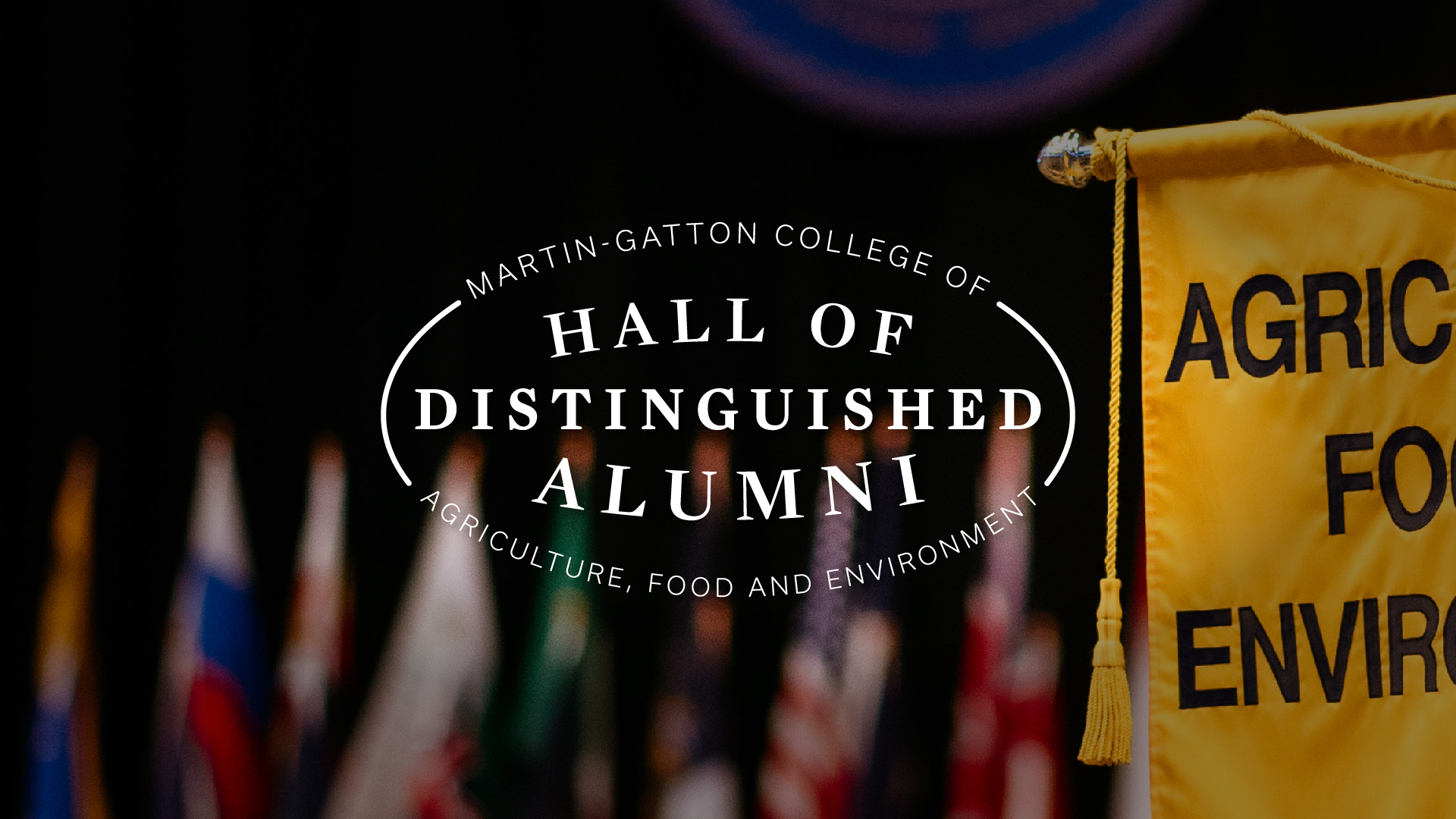
About the Martin-Gatton CAFE Hall of Distinguished Alumni
Every two years, alumni will be inducted to the University of Kentucky Martin-Gatton College of Agriculture, Food and Environment Hall of Distinguished Alumni. The Martin-Gatton College of Agriculture, Food and Environment Office of Philanthropy & Alumni, along with the Martin-Gatton CAFE Alumni Association, administers the program. The Selection Committee is comprised of at least one representative from the following groups: The Martin-Gatton CAFE Alumni Association, extension, faculty, and staff.
2024 Inductees Named
The Martin-Gatton CAFE Alumni Association has named the 2024 Hall of Distinguished Alumni (HODA) inductees. The deadline for our 2024 induction ceremony was December 1, 2023. Please review the documents below for more information about the nomination process:
Submissions Closed
The submission window to nominate individuals for the Martin-Gatton CAFE Hall of Distinguished Alumni is currently closed. Check back for the next round of nominations.
Meet the 2024 Hall of Distinguished Alumni Inductees
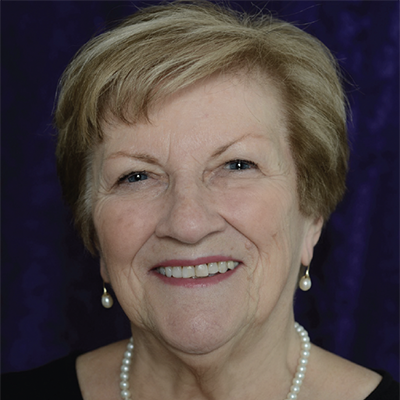
Audrey Carr
‘64 B.S. Home Economics Education
‘72 M.S. Home Economics Education
‘94 Ed.D. Vocational Education
Dr. Audrey Carr, a three-time alumna of the University of Kentucky, earned a B.S. and an M.S. in home economic education and an Ed.D. from the College of Education.
Her career encompasses various roles, starting as a home economics teacher, student-teacher supervisor and advisor for FHA-HERO. She later transitioned to the Kentucky Department of Education, where she held several key positions, including director of secondary vocational education programs, associate superintendent for vocational education, director of professional development, and deputy commissioner for adult and technical education in Kentucky.
The final phase of her career was as a legislative analyst with the Kentucky Legislative Research Commission, where she concluded her service as an education committee staff administrator. Dr. Carr has also served as president of the School of Human Environmental Sciences Alumni Association and spearheaded efforts to establish an endowed professorship. Notably, she was inducted into the UK Human Environmental Sciences Hall of Fame in 2002–03.
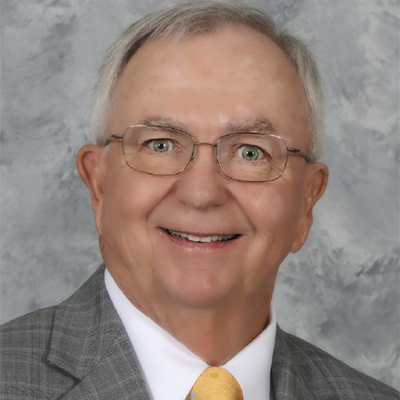
David Williams
‘66 B.S. Animal Science
‘68 M.S. Animal Science
Dr. David Williams graduated from UK with a B.S. in animal science in 1966. He went on to earn his M.S. from UK in 1968 and his Ph.D. in animal nutrition from Iowa State University in 1972.
He has authored 10 technical papers in scientific journals, and since 1978, he has served as president of Burkmann Industries, Inc., which owns and operates 11 animal-feed manufacturing facilities and 12 stores in Kentucky and Tennessee. In addition to creating numerous businesses, Dr. Williams has served as president of the Louisville Agribusiness Association, vice president of the Kentucky Beef Cattle Association, president of the Kentucky Feed and Grain Association, chair of the Kentucky Cattlemen’s Foundation, and director of the Danville-Boyle County Chamber of Commerce, in addition to being appointed as a member of the Federal Reserve Bank, St. Louis Region, Agriculture Advisory Council. He is a member of the Kentucky State Fair Board, treasurer of the Kentucky Cattlemen’s Foundation and the Kentucky representative for the National Institute for Animal Agriculture.
Dr. Williams is a Hall of Fame member for both UK’s Department of Animal and Food Sciences and the Kentucky Cattlemen’s Association. In 2022, he was named the Honorary Commissioner of Agriculture for Kentucky. He has also served the Omicron chapter of Alpha Gamma Rho as a past member of the Alumni Board.
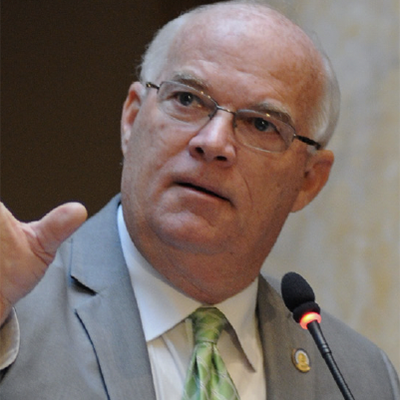
Dennis Parrett
‘81 B.S. Agricultural Economics
Dennis Parrett is a distinguished figure in Kentucky’s agricultural and political landscape. He earned a B.S. in agricultural economics from UK in 1981. Parrett began his career as a county extension agent for agriculture in Hardin and Nelson counties. He later served in managerial roles at Southern States Cooperative and Cecilia Farm Services. In 2002 he established a crop-insurance agency, managing its operations until 2020.
His political journey began with his election as a Kentucky state senator in 2011, a position he held until 2022. Throughout his tenure, he championed agricultural policies and rural development initiatives. Alongside his professional endeavors, Parrett has been active in farming, specializing in cattle, forage and grain since 1985. Additionally, he has served as the president of the Lincoln Trail Area Alumni Network and the college’s Alumni Association.
Parrett played a pivotal role in establishing the Lincoln Trail Area Scholarship Endowment, which has awarded over $51,000 in scholarships to deserving students.
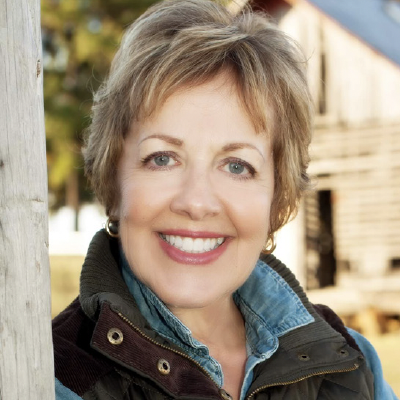
Marianne Smith Edge
‘77 B.S. Dietetics
Marianne Smith Edge serves as an adjunct assistant professor in the Department of Dietetics and Human Nutrition, where she provides strategic guidance, leads seminars and fosters collaboration between the nutrition and agriculture sectors within the college. She holds a B.S. in dietetics from UK and an M.S. in public health nutrition from Western Kentucky University.
With 35 years of experience in food and agriculture communication, professional speaking, strategic planning and facilitation, her career has evolved from owning a nutrition and food-service health-care consulting business to working with the food value chain in communication, strategic positioning and consumer insights. As a sixth-generation Kentucky farm owner and registered dietitian, she seamlessly integrates her agricultural knowledge with nutrition and food expertise to bridge the connection from farm to plate.
Among her numerous accomplishments, Marianne Smith Edge is a member of the UK Human Environmental Sciences Hall of Fame. She has also held significant leadership roles, including president of the UK Alumni Association and as a member of the UK Board of Trustees.
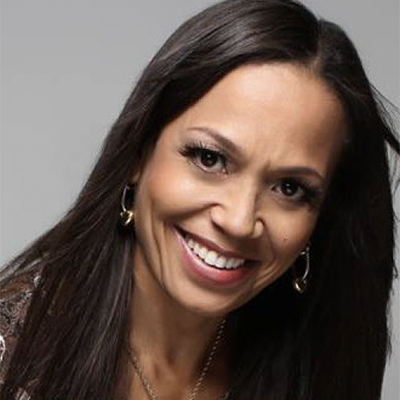
Valerie Still
‘00 B.S. Animal Science
Valerie Still is a distinguished three-time basketball All-American, holding University of Kentucky’s career records, for both men and women, in scoring (2,763) and rebounding (1,525). Additionally, she was a member of the USA National team. She earned a B.S. in animal science from UK and a master’s degree in African American and African studies from The Ohio State University, where she is currently pursuing her doctorate in sport humanities.
Still was a nine-time all-star in the Italian women’s professional league, where she frequently led the league in scoring and secured a Lega Pro championship. She also achieved remarkable success with the Columbus Quest of the American Basketball League (ABL), winning two world championships and earning MVP honors in both championship series. Following the ABL’s closure, Still transitioned to the Women’s National Basketball Association (WNBA), playing for the Washington Mystics before assuming the role of assistant coach with both the Mystics and Orlando Miracle.
In 1998, she founded the Valerie Still Foundation, a nonprofit youth organization. Still is also co-founder and CEO of the Clarence B. Jones Institute for Social Advocacy.
Still’s remarkable achievements have earned her induction into several Halls of Fame, notably becoming the sole woman inducted into the University of Kentucky Athletic Hall of Fame’s inaugural class. She was inducted into the Women’s Basketball Hall of Fame Class of 2019. Most recently, in October 2021, she was honored with induction into the University of Kentucky Distinguished Alumni Hall of Fame.
Past Inductees
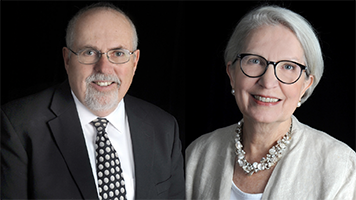 Rick Carringer, '77, Plant Pathology
Rick Carringer, '77, Plant Pathology
Sandra Carringer, '76, Agronomy
A native of Muhlenberg County, Sandra Carringer graduated in 1976 with a bachelor’s degree in agronomy. Richard Carringer graduated in 1977 with a doctoral degree in plant physiology.
After working for agricultural industries and private research groups for several years, they formed The Carringers Inc., which provides support for field research trials used for global regulatory submissions in support of pesticide products. They established a second company, Carringer Ag Research Service Inc. about a decade later.
As an independent contract research organization, the Carringers have consistently delivered excellent, high-quality field studies for many years. Their quality, reliability and ability to overcome challenges is a hallmark of their work. They are pioneers in conducting regulated, genetically modified field trials.
Their contribution to the agriculture industry and agricultural economy reflects significant advancement in ag biotechnology that has helped combat the challenges of food security and environmental sustainability. Their work has touched most agriculture biotechnology products grown on 190 million hectares worldwide. The safety data generated under the Carringers’ leadership helps to ensure public and regulatory agencies that food produced by genetically modified technology is safe for human and animal consumption.
They are involved in a large, multi-partner philanthropic project funded by the Bill and Melinda Gates Foundation involving new seed production technologies to improve maize production in Africa. The Carringers established a graduate student award in CAFE, and they have been mentors and trainers throughout their careers. They reside in Apex, North Carolina.
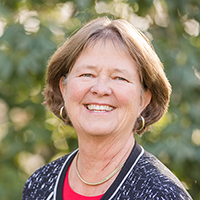 Barbara Glenn, '76, '80, Animal Science
Barbara Glenn, '76, '80, Animal Science
Barbara Glenn has spent her entire career serving the agriculture community through her research, advocacy, leadership and volunteer work. Her passion for agriculture began at an early age participating in 4-H. She received a bachelor’s degree in animal science in 1976 and a doctorate in ruminant nutrition in 1980 from UK.
Glenn began her career at the University of Maryland before joining the U.S. Department of Agriculture Agricultural Research Service as a research dairy scientist, a position she held for 17 years. After a successful USDA career, she shifted her career focus to government relations, working for several organizations on the national level.
From 2014 until her retirement in 2021, Glenn was chief executive officer of the National Association of State Departments of Agriculture. She championed the work of state departments of agriculture. She was a unifying voice, successfully interfacing between state and federal policymakers, navigating a challenging regulatory landscape, strengthening national agriculture policy and setting productive trade policy for agriculture through the passage of the United States-Mexico-Canada Agreement.
Glenn was the first woman president of the American Society of Animal Science. She served on the USDA Agricultural Policy Advisory Committee and as a U.S. Office of Trade representative through multiple presidential administrations. She was chair of the Coalition on Funding Agricultural Research Missions and is a fellow with the American Association for the Advancement of Science. Glenn also served as a member of the Board on Agriculture and Natural Resources of the National Academy of Sciences, and the Food and Drug Administration’s Veterinary Medicine Advisory Committee.
Additionally, she volunteers for the Maryland Agricultural Education Foundation Board, Howard County Maryland 4-H Foundation Board and Maryland Farm Bureau Agriculture Education and Extension Committee. Glenn lives in Highland, Maryland.
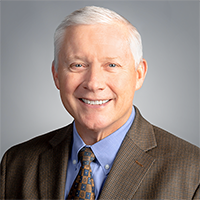 Drew Graham, '83, '85, Ag Education
Drew Graham, '83, '85, Ag Education
Drew Graham received his bachelor’s degree in agriculture in 1983 and master’s in education in 1985 from UK. His career started in the livestock feed business, and he continued in that role while also moving into state and local government, serving as Kentucky representative for the 73rd District. He became Clark County judge-executive and, later, director of legislative affairs for former Gov. Ernie Fletcher.
During his political career, Graham was recognized for a steady hand, creativity and bipartisanship. As county judge-executive, he proposed and secured passage of a special taxing district to help support the county’s Cooperative Extension Service. While state representative, he chaired the House Agriculture and Small Business Committee.
Drew joined the UK College of Agriculture, Food and Environment in 2004 and was eventually promoted to senior assistant dean and director of Government Relations and External Affairs. During this time, he maintained excellent relations with state and federal officials and oversaw the extensive renovation of the UK Veterinary Diagnostic Laboratory and the UK Grain and Forage Center of Excellence. He played a pivotal role in the transformation of the Kentucky Cooperative Extension Service.
In 2018, Graham was named executive vice president of the Kentucky Farm Bureau Federation, a position he holds today. He continues to support the college as a member of the state and national councils for the advancement of extension, research and teaching. Graham owns and operates a family farm in Winchester.
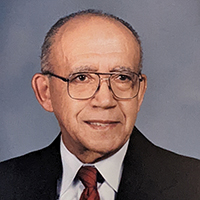 Percy R. Luney, '53, Ag Economics
Percy R. Luney, '53, Ag Economics
The late Percy R. Luney Sr., a native of Breckinridge County, was a war hero, a public servant who conducted pioneering work analyzing highly classified information and a champion for civil rights.
He served for four years as part of the famed 92nd “Buffalo” Infantry Division in World War II and was awarded three Bronze Stars. In 1953, he completed a master’s degree in agricultural economics from UK, becoming the first African American to receive a degree from the UK College of Agriculture, Food and Environment.
He went on to do post-graduate studies at the University of Chicago before taking a post as an intelligence officer with the Central Intelligence Agency in Washington, D.C. Luney’s work focused on using high-altitude photography and satellite-based remote sensing to study agricultural production in the Soviet Union. After 11 years with the CIA, he moved to the U.S. Department of Agriculture Economic Research Service, specializing in natural resource economics.
In 1969, he became deputy chief for the evaluation unit in the USDA Office of the Secretary of Agriculture for Civil Rights. He developed and evaluated the impact of USDA programs on minority participants. He established base data to measure USDA programs’ progress toward equal access and opportunity.
His work in support of civil rights at USDA continued as chief of the Program, Planning and Evaluation Division in the Office of Equal Opportunity and as chief of the Civil Rights Division. He retired from USDA in 1982 and moved from Washington, D.C., to Durham, North Carolina, where he became active in the Duke University Institute for Learning in Retirement and was a deacon at churches in Washington, D.C., and in Durham. Luney later earned his real estate broker’s license and took the H&R Block tax preparer course. While he never worked in either of these fields, he used the skills he learned to provide free advice to friends, senior citizens and low-income families. Luney died in 2004.
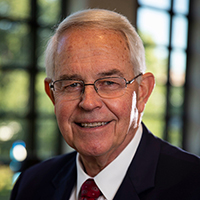 Mike Richey, '74, Ag Science, '76, Ag Education
Mike Richey, '74, Ag Science, '76, Ag Education
A native of Muhlenberg County, Michael Richey received his bachelor’s degree in agricultural education from UK in 1974. He moved from student to staff, beginning a career expanding and supporting alumni and philanthropic efforts – first at the college level, then at the university level and beyond. He also earned a master’s degree in agricultural education from UK in 1979.
Early in his career, Richey was driving throughout Kentucky recruiting students to attend CAFE, and he’s never stopped, even though his roles have changed. During his 24 years in CAFE, he led the first college development program at UK, created the first scholarship banquet, the first college donor recognition society, and began a gift and estate planning program that became a model for others.
UK then named him vice president for Philanthropy and Alumni Engagement, where he managed UK’s philanthropy and alumni programs to national acclaim until retiring in January.
During his tenure, he provided leadership, management and strategies that led to the successful completion of UK’s first-ever capital campaign which exceeded its goal of $1 billion. He completed strategic planning, staffing and the launch of the university’s current comprehensive fundraising campaign with a goal of $2.1 billion.
Richey has served in leadership positions at national and international levels, including president of the National Agriculture Alumni Development Association, Kentucky FFA Foundation and The Gideons International. He has received numerous state and national recognitions for his professional and nonprofit work – including the UK Sullivan Medallion, National Association of State Universities and Land-Grant Colleges special service citation, and the National Agriculture Alumni and Development Association Distinguished Service Award. Richey lives in Lawrenceburg.
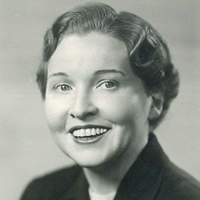 Jessie Wilson Ringo, '37, Home Economics
Jessie Wilson Ringo, '37, Home Economics
The late Jessie Ringo had a 29-year career in home economics as a Cooperative Extension agent and college instructor. Ringo received a bachelor’s degree in 1937 and master’s degree in 1954 in home economics. She was tenacious in her desire to achieve her degree, spending one semester at UK in 1931 before having to leave due to the Great Depression. During that hiatus, she earned a teaching certificate and taught until earning enough to return to UK and complete her undergraduate work.
In 1937, she began her Extension career as a home demonstration agent, but her love of Extension began through 4-H as a child in Daviess County. Her work in Hickman County included assisting with the 1940 Government Surplus Cotton Mattress Program. Using surplus cotton, husbands and wives worked as teams to make mattresses using skills they learned from extension agents. For most of the families that participated, it was the first mattress they owned.
In 1947, Ringo, a widow with three small children, moved to Lexington to obtain a master’s degree. She then taught for one year at Murray State before returning to UK’s home economics department to operate the nursery school training program. In 1967, she returned to her Extension roots as Cooperative Extension agent in Shelby County for three years, before being tapped to serve as acting chair of the UK Department of Management and Family Economics.
Over her teaching career, she wrote the course of study for 19 classes. Ringo retired in 1977 and died in 2002.
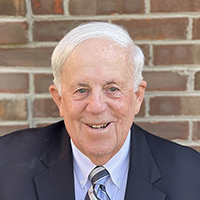 William 'Bill' Smith, '70, Ag Economics
William 'Bill' Smith, '70, Ag Economics
After graduating in 1970 with a bachelor’s degree in agricultural economics, William “Bill” Smith held positions in the agriculture industry before dedicating his career to conducting research trials and seed production for the development of triticale, a small grain.
For more than 37 years, he has played a key role in research and market development to improve triticale. His persistence and expertise helped establish triticale as a viable crop with over 1 million acres annually planted. He has actively worked to develop varieties that require less irrigation, lower fertilizer inputs, improved yield and pest resistance.
Smith annually logs thousands of miles planting on-farm variety trials while working with the U.S. dairy industry to promote improved varieties for grazing and silage. He has worked with several land-grant universities on feed trials for dairy, beef, swine and poultry. Smith has also worked with international plant breeders to promote triticale varieties for livestock forage systems in Australia, Argentina, South Africa and Brazil.
Smith has dedicated his time and talent to his alma mater holding many roles with the CAFE Alumni Association, including president, as well as serving on the UK Alumni Association board of directors.
He served his community through his support of and service to Boone County Extension, serving for 26 years as chairman of the board, and was instrumental in constructing and overseeing three expansions to their campus. Additionally, Smith was involved with relocating the Boone County Farmers Market to its permanent location and helped create the Boone County Arboretum.
Nationally, he has represented the college on the Council of Agriculture, Research Extension and Teaching in many capacities including southern region past chairman and CARET liaison on the Board of Agriculture for federal budgets.
Smith is currently the Eastern U.S. research manager for Northern AgriBrand LLC and lives in Union.
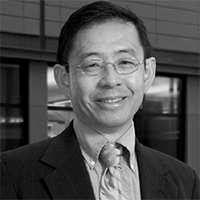 Zhiqiang An
Zhiqiang An
Zhiqiang An, of Houston, Texas, has significantly impacted several fields in the agricultural and biomedical sciences. An received his doctorate in plant pathology in 1991 from the University of Kentucky College of Agriculture, Food and Environment and has gone on to establish himself as a leader in the field of antibody engineering for cancer therapies.
His contributions span three major fields: plant-fungus symbiosis, natural product biosynthesis in endophytic fungi, and development and evaluation of therapeutic antibodies for cancer treatment and other medical purposes.
Since 2009, he has been the director of the Texas Therapeutics Institute at the Brown Foundation Institute of Molecular Medicine and the Robert A. Welch Distinguished University Chair in chemistry at the University of Texas Health Science Center. He leads a team of scientists focusing on the discovery and development of therapeutic antibodies and antibiotics against human diseases including cancer and infectious diseases.
Research conducted at the center focuses on identifying and validating drug targets, antibody engineering and establishing proof-of-principle for therapeutics. He continues to work on practical and pharmaceutically relevant research regarding discovery and biosynthesis of microbial natural products.
Before returning to academia in 2009, An spent more than 15 years in the biotech and pharmaceutical industry on various drug discovery programs. During this time, he led a team of scientists and established a program on biocombinatorial natural products drug discovery using microbial molecular genetics and engineering approaches. This was one of the first attempts in applying molecular genetics tools in natural products drug discovery.
He holds 17 patents and has contributed more than 130 peer-reviewed journal articles, plus several book chapters and two edited books. He is a member of the editorial board of Protein & Cell, associate editor of Mycology: An International Journal on Fungal Biology, deputy editor-in chief, Antibody Therapeutics and is a peer reviewer of grant proposals for multiple national and international agencies. His contribution to the scientific community is well recognized by his peers as he is an elected fellow of Society for Industrial Microbiology and Biotechnology in 2015, elected fellow of the American Academy of Microbiology in 2018 and elected fellow of American Association for the Advancement of Science in 2019.
He has served as principal investigator on grants totaling $20 million, and as co-investigator or co-principal investigator on numerous others. An continues to contribute his talents and expertise to the next generation of scientists, teaching graduate students and providing supervision for graduate and postdoctoral fellows.
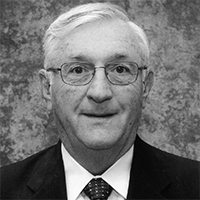 Patrick M. Henderson
Patrick M. Henderson
Patrick Henderson, of Irvington, did not grow up on a farm but he developed his love of agriculture working on his uncle’s farm in Breckinridge County. His love for farming and the UK Wildcats led him to the University of Kentucky College of Agriculture, Food and Environment, where he earned a bachelor’s degree in agricultural economics in 1968 and a master’s in education in 1972.
He began his teaching career at Hart County High School in 1969, before returning to his native Breckinridge County as an agricultural education teacher and going into a diversified farming partnership with his father-in-law. Henderson worked with his colleagues to develop the FFA Chapter into one of the premier chapters in the nation. The chapter was named as one of six outstanding FFA chapters in the nation in 1987 and produced countless state and national FFA officers. He was named Kentucky’s Outstanding Vocational Agriculture Teacher in 1990 and was president of Kentucky Vo-Ag Teachers’ Association.
He returned to college in the mid-1990s to obtain his director of pupil personnel certification and became the assistant superintendent of Breckinridge County Schools from 1996-2002. He also remained committed and involved in agriculture and other local, state and national service opportunities.
Upon his retirement in 2002, farming became Henderson’s full-time job. He also increased his involvement in local, state and national agriculture causes. He served as president of the Kentucky Association of Conservation Districts and helped acquire the first federal grant to conservation districts in the nation. He received the 2010 Distinguished Service Award by the National Association of Conservation Districts and was inducted into the Southeast NACD Hall of Fame that same year. He continues to serve on the Breckinridge County Conservation District board.
Henderson serves on the Kentucky Farm Bureau Federation’s board and has served on numerous state and national advisory groups and committees. He spends time in Frankfort and Washington, D.C., advocating for agriculture.
As a member of Kentucky Agriculture Development Board, which administers federal tobacco settlement funds, he assisted UK officials in developing the university’s application for $15 million of funding for the Grain and Forage Center for Excellence in Princeton.
He is a lifetime member of the CAFE Alumni Association and was awarded the Distinguished Alumni Award by the Lincoln Trail Agriculture Alumni Association in 1988. He serves on the advisory board for the college’s Kentucky Agricultural Leadership Program.
Henderson has been a member of the Breckinridge United Economic Development Committee, district judicial nominating committee, and has served in numerous roles within Irvington and Bewleyville United Methodist Churches.
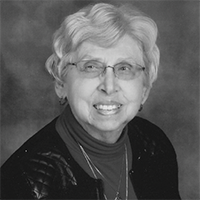 Sarah Tabb Henry
Sarah Tabb Henry
Sarah Tabb Henry, of Lexington, received four degrees from the University of Kentucky, starting with a bachelor’s degree in home economics in 1956, followed by three degrees in education. She has spent much of her professional life promoting home economics and human environmental sciences.
Henry began her career teaching home economics at Scott County High School. She also supervised student teachers for UK. With a background in teaching and supervision, she moved to the Kentucky Department of Education as a supervisor of home economics in 1960. Following this assignment, she returned to UK and developed curriculum used by vocational education and home economics teachers.
In 1969, Henry began a five-year engagement at the Kentucky Department of Education as an assistant director of the home economics unit with statewide responsibilities for assisting teachers and their students. Afterward, she taught at the University of Louisville and Morehead State University before returning to her alma mater in 1980.
She served as assistant dean of the former UK College of Human Environmental Sciences for 13 years. During this time, she worked to smooth the transition for community college students planning to transfer to UK and major in HES programs. She also designed and developed a College Ambassadors program to involve students in promoting and bettering the college, which other UK colleges later emulated. Upon retirement as assisstant dean in 1993, she continued to serve her college as special assistant to the dean for another five years.
She has been an active member of the American Association of Family and Consumer Sciences throughout her career. She served as president and treasurer of the Kentucky Association of Family and Consumer Sciences and was executive secretary from 1994 to 2008.
The university’s Phi Upsilon Omicron honor society recognized her with its Advisor Excellence Award in 1993, and she was inducted into the former College of Human Environmental Sciences Hall of Fame in 2001. She is the principal donor of the Tabb-Henry Scholarship fund in the College of Agriculture, Food and Environment.
She is a life member of the Human Environmental Sciences Alumni Association and has served two terms as president. She is also a life member of the CAFE Alumni Association as well as the UK Alumni Association. Henry is also a University Fellow and a member of the Spindletop Hall Society.
In addition to her dedication to her career field, Henry has served her church in a wide range of roles. She has also been a nursing home activities program volunteer and served on the Scott County Farm Bureau’s board of directors.
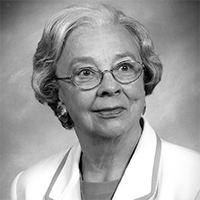 Dorotha Smith Oatts
Dorotha Smith Oatts
Dorotha Smith Oatts, a Bath County native, earned a bachelor of science in home economics education at the University of Kentucky in 1946 and a master’s degree in home economics in 1950. She devoted her professional career to education.
For 11 years, she taught high school home economics in Bardstown and supervised student teachers for seven years. In addition, she taught continuing education classes for adults.
In 1957, Oatts became a supervisor of home economics with the Kentucky Department of Education. In this role, she provided technical assistance in planning, curriculum development, budgeting, reporting and leadership development for teachers in 26 counties. In addition, she served as an assistant state advisor and associate state advisor for the Future Homemakers of America.
In the 1970s, Oatts coordinated the development of a consumer and family life skills program for post-secondary institutions. She led curriculum development, defined teacher qualifications, outlined facility requirements and established ongoing faculty leadership and development programs that were used across Kentucky. Oatts retired from her professional career in 1982 and pursued numerous volunteer projects.
Much of her volunteer work focused around her love of gardening. Perhaps Oatts' most enduring legacy was her visionary leadership during the establishment of the University of Kentucky Arboretum, in partnership with the Lexington-Fayette Urban County Government.
She was an advocate for The Arboretum and provided the challenge gift for the fundraising drive to build The Arboretum’s visitors center that bears her name. She continued her support of The Arboretum until her death in 2018.
She was also a dedicated human environmental sciences alumnus, receiving the Outstanding Alumnus Award from the then UK College of Human Environmental Sciences Alumni Association and earning induction into the School of Human Environmental Sciences Hall of Fame in 2002.
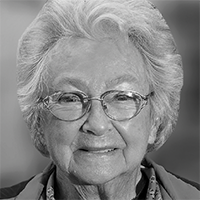
Alice Woods Baesler
Alice Woods Baesler, of Lexington, received her degree in home economics from the University of Kentucky College of Agriculture, Food and Environment in 1963 before embarking on a lifelong journey influencing issues and programs that affect agriculture.
Her career began as a junior high school family and consumer sciences teacher, then she switched to private industry to work as a dining and banquets manager for a local hotel. She went on to be a full-time farm manager when her husband, Scotty, was elected to Congress. She continues to be a partner and active farmer today. She and her husband farm more than 400 acres, and in 2016, she became one of the first women in Kentucky to obtain a license to grow hemp.
In 1985, she joined the Kentucky Department of Agriculture and led the Agriculture in the Classroom program. Baesler worked for the KDA for the next eight years. During that time, she traveled to two international meetings to discuss how to incorporate agriculture into the classroom.
She was also a leader on farm labor issues, and she served on many task forces including the Kentucky Consortium for Hispanics/Latinos, Migrant Network Coalition, Kentucky Farm Workers Program and Kentucky Farm Labor Task Force.
In the 1990s, Kentucky was facing a reduction of tobacco in the farm economy. To examine options and to understand the role women play in agriculture and could play as Kentucky’s farm economy transitioned, she co-sponsored the first Women in Agriculture conference in Kentucky. This led to the co-founding of the Kentucky Women in Agriculture organization in 1999.
Baesler’s long list of activities and service include appointment to the U.S. Burley Tobacco Advisory Council by the U.S. secretary of agriculture. She was a member of the Governor’s Commission on Family Farms, Governor’s Commission of the Economic Status of Women, Kentucky Partners for Family Farms, Kentucky Tobacco Research Board and the Council for Burley Tobacco. She was president of the National Agricultural Women’s Leadership Network, a federation of 12 national women’s agricultural and rural organizations representing more than 1 million members.
She continues to give back to her alma mater and to the community. She has served as a 4-H leader, chair of the Bluegrass Area Extension Council, vice president of the Lexington-Fayette Urban County Library Board, Lindsey Wilson College trustee and Kentucky Board of Education member.
Her many honors include the Thomas Poe Cooper Distinguished Farm Leadership Award, UK’s Human and Environmental Sciences Centennial Laureate Award and the Kentucky Women in Agriculture’s Laura Clay Award.
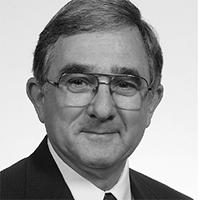 George A. Duncan
George A. Duncan
A native of Auburn, Kentucky, George Duncan’s career at the University of Kentucky College of Agriculture, Food and Environment spanned five decades. He left a lasting legacy through his engineering expertise and his devotion to the 4-H youth development program.
Duncan received his undergraduate, graduate and doctoral degrees from the University of Kentucky in 1961, 1964 and 1979, respectively. He was a member of the U.S. Army Signal Corps from 1961 through 1964.
He became an agriculture engineering specialist with the Cooperative Extension Service in 1966 and served Kentucky as a specialist and professor until his retirement in 2007. He helped improve structural and environmental facilities for agricultural crops throughout his career and for animals during the early part of this career.
Duncan is credited with helping the tobacco industry transition from the time-consuming, hand-tying packaging system to bales. This saved farmers on stripping and hauling costs. For this work, Progressive Farmer Magazine named him the 1983 Man of the Year in Kentucky Agriculture. He also holds three U.S. patents for various tobacco-related equipment.
In 1995, Duncan became the first extension coordinator in the UK Department of Biosystems and Agricultural Engineering and continued in this role until 2001.
Duncan also benefited 4-H with his expertise, and he was a strong contributor throughout his career. He was part of a five-person team that developed the first 4-H computer project series, which earned a U.S. Department of Agriculture 1986 Superior Service Award. Through the years, he worked on many 4-H related projects, was a contest judge and advisor and served as interim assistant director for 4-H in 2002-2003. He is a member of the Kentucky 4-H Foundation and a recipient of the Kentucky 4-H Youth Development Distinguished Leadership Award.
Duncan, who lives in Lexington, is the recipient of many honors and awards including the Wendell H. Ford Tobacco Leadership Award, American Society of Biological and Agricultural Engineers Fellow and the Ag and HES Alumni Association’s Bluegrass Area Outstanding Alumnus. He is a member of the Scovell Society and continues to support his alma mater today through scholarship funds for students in biosystems and agricultural engineering and human environmental sciences as well as the Alpha Gamma Rho fraternity building fund.
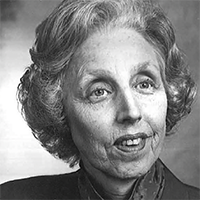 Jewell Deene Ellis
Jewell Deene Ellis
Jewell Deene Ellis was born in Boyle County, the oldest of 11 children. In addition to working on the family farm, Ellis helped her mother care for her younger siblings and with household chores. While participating in 4-H youth development activities, Ellis spent a week at the University of Kentucky and decided she wanted to continue her education there.
She earned her bachelor’s degree and master’s degree in vocational home economics education in 1951 and 1958, respectively. Ellis considered becoming a county extension agent, but chose teaching instead, beginning what would become a 57-year career in education.
While at Nicholas County High School from 1951 to 1960, Ellis developed a reputation for innovative practices, both inside and outside of the classroom. Over those nine years, she supervised more than 30 student teachers. In 1960, she left secondary education to become a traveling teacher-trainer for Murray State University. As a liaison with the Kentucky Department of Education, she supervised Western Kentucky home economics education programs and coordinated a statewide curriculum project, her first of four.
In 1971, she moved to the Kentucky Department of Education, where she advanced to the role of director of the home economics unit the very next year. Subsequently, Ellis took on a wider role in vocational education for the state, serving in a variety of leadership roles until her retirement in 2008.
Among her many accomplishments, she was on the team that developed the first national standards for family and consumer sciences education. She was also co-founder of the Family and Consumer Sciences Education Coalition, an advocacy and public policy alliance.
Ellis is a School of Human Environmental Sciences Hall of Fame member, UK Fellow, HES Centennial Laureate and a Fort Harrod Area Ag & HES Alumni Association Lifetime Achievement Award recipient. Additionally, she has received the Carl Perkins Humanitarian Award from the American Vocational Association, Kentucky FFA Association Distinguished Service Award and the American Association of Family and Consumer Sciences Distinguished Service Award.
She continues to be an advocate for her profession, a UK supporter and a mentor to countless professionals. Ellis, of Danville, and her family have established two endowed scholarships in the College of Agriculture, Food and Environment. She is active in the Forkland Community Center, Forkland Heritage Festival and Review and has served on many boards and committees and held numerous leadership roles.
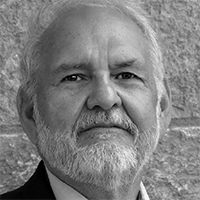 William E. Seale
William E. Seale
A three-time graduate of the University of Kentucky, with two degrees from the College of Agriculture, Food and Environment, William E. Seale worked in the education and financial sectors for nearly 40 years. The Fayette County native earned his undergraduate degree in chemistry, then earned both his master’s degree in 1969 and doctorate in 1975 in agricultural economics.
He began his career teaching in the community college system before joining the Kentucky Cooperative Extension Service as a county agent. After completing his doctorate, he joined the staff of Kentucky’s U.S. Sen. Walter Huddleston.
The next step on Seale’s career ladder was as government relations vice president for a New York futures exchange from 1979 to 1983. He was then appointed by President Ronald Reagan, and served for five years as commissioner of the Commodity Futures Trading Commission.
After serving with the commission, he joined the faculty at George Washington University. He went on to serve as chair of the department of finance and as senior associate dean of the business school. During this time, he also developed a consulting firm, Financial Markets Group Inc. He frequently spoke before congressional committees and to the media.
After retiring from the university, Seale founded and helped launch the ProFunds Group. One of three partners of the Maryland-based mutual fund investment firm, he also served as the chief economist until 2008. He remains a principal in the firm.
Seale served on the board of directors of the National Futures Association. He was also a public director of the Kansas City Board of Trade, The New York Cotton Exchange, New York Board of Trade and the New York Futures Exchange. Other memberships include the Southern Agricultural Economics Association, Agricultural and Applied Economics Association, American Finance Association and Financial Management Association International.
He is a trustee with the Keepers Preservation Education Fund, and in 2006, founded the William E. Seale Family Foundation to support higher education. Seale is a generous UK supporter, particularly to the Gatton College of Business and Economics and the College of Agriculture, Food and Environment. He established the D. Milton Shuffett Agricultural Economics Endowment Fund, in honor of his mentor. The endowment funds undergraduate scholarships for Kentucky students.
Today, Seale spends much of his time between his homes in Annapolis, Maryland, and Florida.
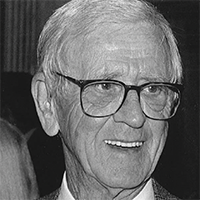 Dallas Milton Shuffett
Dallas Milton Shuffett
Dallas Milton Shuffett’s life might be best told through the stories of his many students who credit him with setting them on paths to successful careers. His work in the University of Kentucky College of Agriculture, Food and Environment Department of Agricultural Economics positively impacted many.
During his time in the classroom, he mentored many students as they pursued their academic and career goals. His impact was such that one of his former students endowed a scholarship in his honor.
Born on a Green County farm, Shuffett began his professional career working for the U.S. Agricultural Stabilization and Conservation Service at the county level and served as treasurer of the local organization. He then served in the U.S. Army during World War II in the European theater.
After military service, he spent several months operating a farm but then began pursuing higher education, first at Campbellsville Junior College and then at UK. He received his bachelor’s and master’s degrees from UK in agricultural economics in 1948 and 1951, respectively. He earned his doctorate from UK in 1956. He worked briefly as a statistician for the U.S. Department of Agriculture in Washington, D.C., while studying at American University as part of his graduate research.
In 1953, he joined the college as an assistant professor in agricultural economics and continued to move up the ranks to associate professor and professor. He served as vice chair of the department for 16 years and as chair for two years.
Shuffett’s expertise was in tobacco policy during a time when tobacco was the leading crop in the state. He was one of the world’s top specialists in this field. He served as a consultant to the Burley Farmers Advisory Council and the Council for Burley Tobacco. In 1978, he was named the Outstanding Tobacco Economist by the Tobacco Merchants Association of New York.
His work led him to consult with many entities over the years, including with the USDA on developing a tobacco research program. He had great impact on both the state and national level to this industry during his long and prolific career.
In 1987, Shuffett was tapped to become the college’s associate dean for research and associate director of the Kentucky Agricultural Experiment Station. He served in this role until retiring from the university in 1992 and today lives in Campbellsville.
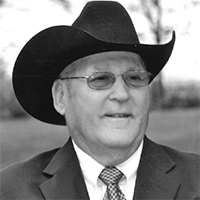 Charles E. Boyd
Charles E. Boyd
After graduating from the University of Kentucky College of Agriculture, Food and Environment in 1964, Charles E. Boyd returned to his family’s Mays Lick farm where he built their cattle enterprise into the well-known and respected beef operation it is today.
Boyd Beef Cattle is recognized as one of this nation’s top seed stock producers of two major beef cattle breeds. He worked tirelessly to promote and advance livestock and farming organizations and associations and built a true family operation for future generations.
Boyd mentored youth and adults in evaluating livestock and in profitable production and management of quality cattle. He hosted and made his cattle available for 4-H, FFA and college judging teams from more than 20 states. He was also one of the most sought after purebred livestock judges, having served that role in almost every state.
He was a charter member of the Mason County Cattlemen’s Association and served as its first president. Boyd was also director of the Kentucky Cattlemen’s Association, member of the Kentucky Livestock Improvement Association and Kentucky State Board of Agriculture.
Boyd was instrumental in founding the North American International Livestock Exposition and served on the beef advisory board and on the steering committee. He was a longtime member and director of the American Hereford Association, serving as president three times. He also served on the steering committee for the National Hereford Show.
Through the years, Boyd was the recipient of numerous honors and awards including his induction into the Mason County Alumni Hall of Fame and American Hereford Association Hall of Fame.
Boyd died on Sept. 30, 2015.
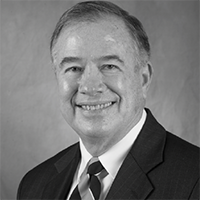 Brady J. Deaton
Brady J. Deaton
Brady Deaton grew up on his family’s farm in Kentucky where 4-H played an important role in his early life and development. He joined 4-H at 10, and the program taught him about service to his community and established what was to become a lifelong interest in agricultural economics.
That interest grew into a passion at UK where in 1966 he earned his bachelor’s degree in agricultural economics followed by a master’s degree in diplomacy and international commerce. He served as a Peace Corps volunteer in Thailand from 1962 to 1964, where he taught vocational agriculture in the Thai language. Deaton also received master and doctoral degrees in agricultural economics from the University of Wisconsin.
He began his academic career as a faculty member at the University of Tennessee. During this time, he was appointed as staff director of the Special Task Force on Food for Peace for the U.S. Department of Agriculture in Washington, D.C. Deaton next accepted a professorship at Virginia Tech in the Department of Agricultural Economics, where he also served as coordinator of the Rural Development Research and Extension Program, and later as associate director of the Office for International Development.
After 11 years at Virginia Tech, Deaton joined the University of Missouri faculty as professor and chair of the agricultural economics department and head of the social science unit in the College of Agriculture, Food and Natural Resources. He moved up the ranks being appointed chief of staff in the chancellor’s office, then deputy chancellor, and eventually provost. Over time, Deaton’s responsibilities were expanded to incorporate Student Affairs and Business Services and his title was elevated to executive vice chancellor for academic affairs.
In 2004, Deaton was selected as chancellor of the University of Missouri-Columbia. He distinguished himself in that role until his retirement in November 2013. That same year, the University of Missouri board of curators approved the establishment of the Brady and Anne Deaton Institute for University Leadership in International Development.
During his career, Deaton served as chair of the Academic Affairs Council of the Association of Public and Land-grant Universities and is a recipient of the association’s Malone Award for furthering international education in public higher education. He also served a two-year term as chair of the Missouri Council on Public Higher Education and chaired the Big 12 Conference board of directors. In 2011, President Barack Obama appointed Deaton as chair of the Board for International Food and Agricultural Development, an advisory council to the United States Agency for International Development. He was reappointed in 2012 for a four-year term.
He also received honorary degrees from universities in India, Thailand and Korea. He was inducted into the UK Alumni Association’s Hall of Distinguished Alumni in 2015.
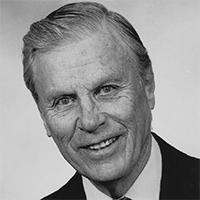 Harold G. Love
Harold G. Love
Harold Love began his career as an assistant county agent in Mercer County working with 4-H and horticulture programs and culminated it as an extension professor specializing in agribusiness marketing and management.
Along the way, he did consultancy work in the United States, Indonesia, India, Thailand, China and Honduras and with many state, national and international agencies and organizations. He also taught vocational agriculture to veterans, was a visiting professor in Brazil and worked with UK/USAID Western Universities agricultural education project for Indonesia for four years.
Much of Love’s work centered on conducting comprehensive management audits that provided in-depth education and advice to help agribusiness managers increase efficiency and profitability. His work in this area led first to improving management techniques in the state and region. In the 1970s, Love was funded by the U.S. Department of Agriculture to develop the materials for these audits on a national scale.
His efforts in this arena were widespread and long-lasting. Management education and training programs in many parts of the United States still employ the techniques, approaches and materials from Love’s work.
Additionally, he was a mentor to many in the agricultural economics field with many educators going on to have illustrious careers. Many of the programs developed by these experts were rooted in the knowledge gained through their association with Love.
Love, of Lexington, received his bachelor’s degree in 1949 and master’s degree in 1962 from the University of Kentucky College of Agriculture, Food and Environment and his doctorate degree from the University of Missouri. He has authored more than 65 research and extension publications, 70 papers and numerous other documents. He was a member and officer of the UK Federal Credit Union board and is the recipient of numerous awards and honors during his career.
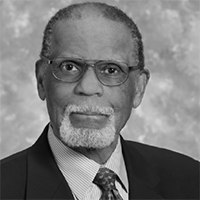 Rupert G. Seals
Rupert G. Seals
Rupert G. Seals, a Fayette County native, has had an esteemed career in higher education, rising through the ranks from instructor to professor and dean. He has given much to agriculture through exemplary academic leadership, and his advocacy and action in creating a national awareness of the vital need for increased economic support and opportunities for African Americans at land-grant universities.
During high school in Lexington, Seals was elected to two national offices – secretary and president – for the New Farmers of America. This organization was established in 1935 to serve agriculture students where schools were segregated by law. The organization merged with the National FFA organization in 1965.
Seals received his bachelor’s degree in dairy science in 1953 from Florida A&M University. He returned to Kentucky and in 1956 became the first African American to receive a master’s degree from the College of Agriculture, Food and Environment. In 1960, he became only the fifth African American to earn a doctorate from Washington State University.
During his career, Seals taught at Washington State, Tennessee State University, Iowa State University and the University of Nevada. He was professor and dean of the School of Agriculture and Home Economics at Florida A&M from 1969 to 1974. He was associate dean of the College of Agriculture and professor of animal nutrition at the University of Nevada from 1976 to 1987.
He returned to Florida A&M in 1989 to direct international programs for five years, and then taught biochemistry until he retired in 1998. In addition, he coordinated special research projects for the U.S. Department of Agriculture’s Cooperative State Research Service in Washington, D.C., for two years.
His book, Disparity: An Analysis of the Historical, Political and Funding Factors at the State Level Affecting Black Academic Agriculture, published in 1998, details some of the early politics accompanying the designation of both the predominantly white and predominantly Black land-grant schools in 17 southern states.
He has received numerous honors including being inducted into the George Washington Carver Public Service Hall of Fame at Tuskegee University. He is the recipient of the Washington State alumni achievement award and the distinguished graduate award from the Washington State University Department of Animal Science.
He has been an active member of the NAACP, American Dairy Science Association, American Chemical Society and the Institute of Food Technologies. The Reno, Nevada, resident has been a trailblazer and a scholar producing more than 50 publications and abstracts as well as numerous depositions and federal court testimonies.
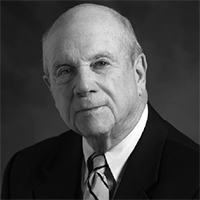 Robert Hall Jr.
Robert Hall Jr.
Robert Hall Jr. grew up on a family farm in Stamping Ground and was active in 4-H as a youth. He attended the University of Kentucky College of Agriculture, Food and Environment where he participated on the livestock and meats judging teams as well as other agricultural activities. He graduated with a degree in agriculture in 1953.
After graduation, Hall served in the U.S. Army as a food inspector, then went on to hold beef cattle herdsman positions in the Northeast and at UK, where he built and managed the beef herd into one of the premier herds in higher education.
In the 1960s, he purchased a small business, Farmers Feed Mill, which through product development and service has grown into a company with worldwide markets. Hall continues to serve as president of the Lexington-based company.
While growing his family business, Hall continued to serve agriculture in other capacities. He was a leader in relocating the North American International Livestock Exposition from Chicago to Louisville and continued to serve for a number of years as a director for the exposition. He also served 38 years as chairman of the sheep advisory committee with the expo. He is past director of the Kentucky Feed and Grain Association, past president of the National Suffolk Sheep Association and has served on numerous boards.
Hall has also been a dedicated and valued member of the community. He was sponsor of the first Honor Flight from the Bluegrass Airport to Washington, D.C., for Central and Eastern Kentucky World War II, Korean and Vietnam veterans to visit the memorials dedicated to their service.
He mentored and employed numerous individuals throughout his life. He sponsored a refugee family from Bosnia and hired the father of the family to work at the feed mill. Today the family are U.S. citizens, and the father has moved up the company ladder. Hall has also been active in his church, Heifer International, Habitat for Humanity and God’s Pantry.
Hall has received numerous awards and honors including being the first inductee into CAFE’s Department of Animal Sciences Hall of Fame. He is a member of the United Suffolk Sheep Association Hall of Fame, a recipient of the Farm Bureau Distinguished Service to Agriculture in Fayette County Award, Harold Workman Distinguished Service to Agriculture Award, The UK Scovell Society and is a UK Fellow, to name a few.
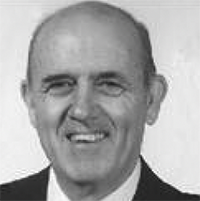 James D. Kemp
James D. Kemp
James D. Kemp spent nearly 40 years teaching and advising undergraduate and graduate students in the Department of Animal and Food Sciences at the University of Kentucky, many of whom today are well-recognized in their respective careers.
His career at UK began in 1952 and during that time he was instrumental in helping establish the food science program in the UK College of Agriculture, Food and Environment. He had a passion for intercollegiate meats judging and served as coach for several teams. He was a member of several honor societies and served as the faculty advisor to UK’s Block and Bridle Club.
Kemp was well-known for his research on country ham, and he spent many years judging hams at county and state fairs. He also helped initiate what is now a well-known event at the Kentucky State Fair – the annual grand champion ham auction. The sale proceeds go to various charities.
During his career, he served as president of the American Meat Science Association and was on the board of directors of the Council of Agricultural Science and Technology. He was named a fellow by the Institute of Food Technologists and the American Society of Animal Science.
He was a member and chair of the faculty senate and served four years as the faculty representative on the UK board of trustees in the mid-1980s. He is also the author of a book on the college’s Department of Animal and Food Sciences.
Kemp was born on Feb. 6, 1923, in Pickett. He went on to receive his undergraduate degree in 1948 and his master’s degree in 1949, both in agriculture at UK. He received his doctorate from the University of Illinois and spent a year in New Zealand as a Fulbright Scholar.
In addition to career work, Kemp was active in his church and community. He was a member of the Lions Club and was a board member of Central Kentucky Radio Eye, where he spent many hours reading to the blind.
Kemp died on Feb. 17, 2015.
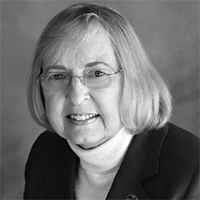 Barbara L. Rice
Barbara L. Rice
Barbara Landrum Rice of Bellaire, Texas, spends her days working with astronauts as a research dietitian at the Johnson Space Center. The Simpson County native graduated from UK with a degree in dietetics in 1962.
Rice was active in 4-H and the Future Homemakers of America while growing up in Kentucky and credits the organizations with helping her to develop leadership and speaking skills. After graduating from UK, Rice spent a year in Panama as an International 4-H Youth Exchange delegate.
Upon returning to the United States, Rice moved to California to complete a yearlong dietetic internship and then directed a school food service. She went on to receive her master’s degree in nutrition at California State University, directed the nutrition training program at the Los Angeles Children’s Hospital, started a private practice in nutrition consulting for children and adults and taught at two universities before moving to Texas.
In 1990, she joined NASA as a research dietitian at the Johnson Space Center in the Life Sciences Division, which is responsible for determining the nutrients that are needed for living and working in microgravity. She has worked with both U.S. and Russian crews. Her expertise has been called on many times over the years including in 2010 when a team from NASA consulted during the rescue of 33 Chilean miners trapped underground for 69 days, as nutrition was an important component of their successful rescue.
Rice is the author of numerous publications and has been the recipient of numerous awards and honors from NASA and received the Silver Snoopy Personal Award for Professional Excellence presented by the Astronaut Corps.
Rice and her sisters established a scholarship fund in honor of their mother, Bessie G. Landrum, in the School of Human and Environmental Sciences. She has also created a dietetics scholarship at UK and a UK library fund for purchasing dietetics and nutrition publications. She was inducted into the Human Environmental Sciences Hall of Fame in 2002 and into the UK Alumni Association’s Hall of Distinguished Alumni in 2010.
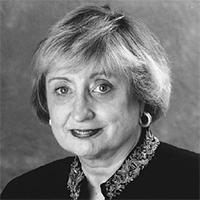 Bonnie O. Tanner
Bonnie O. Tanner
Bonnie O. Tanner of Harrodsburg received her bachelor’s degree in home economics at UK in 1963 and master’s and doctoral degrees in agricultural and extension education at the University of Maryland.
Immediately after graduating from UK, she established a home economics program at a Kentucky mental hospital, creating training for community re-entry and supervising a halfway house in Lexington. It was the first of many of Tanner’s initiatives that became national models.
She taught middle school students home economics in Pennsylvania, then served as an extension agent for home economics and as an associate professor in Maryland. In Maryland, she developed curriculum and training programs and served in a variety of leadership roles.
In 1975, she joined the Bureau of Labor Statistics but soon moved on to the U.S. Department of Agriculture where her work in women’s leadership, dietary guidelines, farm to school and food and fitness were nationally and internationally recognized.
She returned to UK in 1999 and served as assistant director for family and consumer sciences for five years, then transitioned to working on special projects for the college until her retirement in 2007. Throughout her career, Tanner encouraged and implemented the formation of strategic partnerships, collaborations and alliances. At UK, she developed unique partnerships in the arena of public health including the Health Education through Extension Leadership initiative and a partnership with the College of Public Health and Cooperative Extension.
Tanner was co-founder of the Kentucky Women in Agriculture organization, a nonprofit now in its 15th year. That group also organized an economic fact-finding mission to Cuba in 2002. She was an early advocate for local foods and farm to school programs and served on several governors’ task forces related to family farms, economic status of women and early childhood development.
Tanner has also led an active life outside her career field. She has served on the UK Art Museum Advisory Committee, Mercer County Habitat for Humanity, Bluegrass Trust for Historic Preservation, James Harrod Trust and Kentucky Society of Washington, D.C. She is the author of numerous publications and the recipient of numerous honors including the Laura Clay Award and the UK CAFE Human Environmental Sciences Centennial Laureate Award.
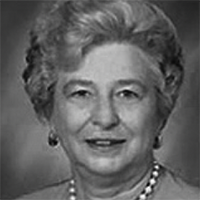 Myra Leigh Tobin
Myra Leigh Tobin
Myra Leigh Tobin, a native of Harned, received her bachelor’s degree at the University of Kentucky in home economics in 1962, a master’s degree in counseling psychology at Ohio State and a master’s in business administration from New York University. Her education gave her the foundation to be a trailblazer in the business world and a generous philanthropist.
Tobin briefly worked for U.S. Rep. William Natcher and in the Kentucky Department of Commerce before moving to New York. She had previously spent time there as part of General Electric’s marketing management program. She began working at Goldman Sachs Group Inc. and then moved to the New York-based international insurance firm Marsh and McLennan Companies, where she rose through the ranks to become senior vice president and then managing director, a position she held from 1982 until retiring in 1998. She was the first woman with a master’s in business administration hired by Marsh and McLennan, the first woman managing director of the firm and the first chair of the firm’s Chemical and Pharmaceutical Industry Committee.
She was recognized as Insurance Woman of the Year by the Association of Professional Insurance Women in 1984, the recipient of the Helen Garvin Outstanding Achievement Award of the National Association of Insurance Women and the Timothy J. Mahoney Lifetime Sales Leadership Award. She was a member of the board of the National Association of Insurance Brokers for three years. She is a former president of the Financial Women’s Association of New York and the International Alliance, a network of executive and professional women.
Tobin has been a leader in professional and community organizations in New York and remained connected to her Kentucky roots through her farm in Breckinridge County. Tobin’s support of UK HealthCare enabled a new chapel, the Myra Leigh Tobin Chapel, to be constructed in the new UK hospital. She has served as president of the UK Alumni Association and served for six years on the UK board of trustees.
She served as president of the Kentuckians of New York, was a founding member of the board of the New York Women’s Foundation and served on the board of trustees of the First Presbyterian Church in New York City where she helped raise more than $2 million for a restoration project by serving as the fundraising chair.
Tobin was inducted into the UK Hall of Distinguished Alumni in 2000.
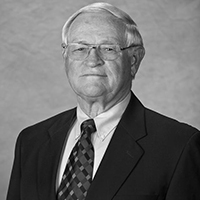 Marcus Randall Barnett
Marcus Randall Barnett
Randall Barnett served in many capacities during his tenure with the college, starting as an assistant 4-H agent and rising through the ranks to finish his career as associate dean. He founded and, for many years, directed what is today known as the Kentucky Agricultural Leadership Program. He was instrumental in creating and promoting the Kentucky Cooperative Extension advisory council system, provided the leadership to better financially position county extension offices and secured funding for several college facilities. He received a bachelor’s degree in dairy production from the college in 1957, a master’s in extension education from UK in 1964 and his doctorate from North Carolina State University in adult education and administration.
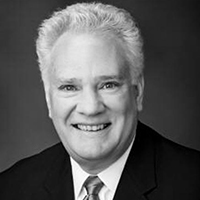 Thomas T. Hammond
Thomas T. Hammond
Tom Hammond is recognized as one of the leading network sports broadcasters in the United States. His vast body of work includes covering the Olympics, calling thoroughbred horse racing, play-by-play of the NBA, the WNBA, college basketball, gymnastics, figure skating and the Orange Bowl. He is the recipient of numerous awards including three Emmys and two Eclipse Awards, horse racing’s top honor. He was the play-by-play voice for Notre Dame football for 21 years. Hammond, of Lexington, has a degree in animal science with an emphasis in equine genetics from UK in 1967. He is a strong supporter of the university, community and the college, where his grandfather, Thomas Poe Cooper, was once dean.
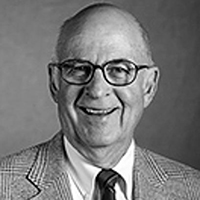 William Moody
William Moody
During William Moody’s tenure as a UK meat scientist, he taught more than 2,500 students, served as advisor or committee member to 55 graduate students and had an active research program. He served as an advisor for one or more student organizations for 30 of his 37 years at UK. His passion for his students and his excellence in teaching and service are reflected in his seven teaching awards. Moody, of Lexington, continues to be a strong supporter of UK, the college and FarmHouse Fraternity. He received his bachelor’s degree in 1956 in animal husbandry from UK and master’s degree in the same field in 1957. He received his doctorate degree in meat science/physiology from the University of Missouri in 1963.
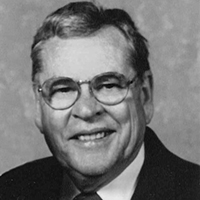 John Robertson
John Robertson
John Robertson began his career as a swine specialist and held several positions prior to being named associate dean for instruction, a position he held from 1968 to 1994. Robertson is a believer in the total student experience and implemented that idea throughout his career. Under his leadership, a career placement service was started for the college’s students along with international exchange programs that continue today. He began the student/faculty picnic that is in its 46th year as well as the annual scholarship banquet that allows students and donors to be recognized and interact with each other. He was also instrumental in starting the UK agricultural alumni association. Robertson received his bachelor’s degree in agriculture from UK in 1953 and his master’s degree in animal husbandry in 1958.
Posthumous Recipients
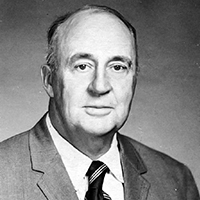 Henry Carlisle Besuden was born in Winchester in 1904, and earned a bachelor’s degree in agriculture from the University of Kentucky in 1926. He played center on UK's basketball team during the 1925 to 1926 season. In 1965, Besuden became one of 30 athletes to receive the Centennial Athletic Medallion. Known by sheep breeders throughout the world for his contributions to the industry, he served as president and director of the American Southdown Association, vice president and board member of the International Livestock Show, Chicago, and a member of the Governor's Commission on Agriculture. Besuden won 12 grand championships in 18 tries at the International Livestock Exposition. His portrait was presented to the Saddle and Sirloin Club in 1971. Besuden was also a conservationist. In 1950, he received the Green Pasture Award for outstanding conservation practices, the highest award given by the Kentucky Soil Conservation Service. In 1962, Besuden received the Golden Sheaf Award from UK for outstanding agricultural achievements. In 1975, he was named to the UK Hall of Distinguished Alumni and received the College of Agriculture Distinguished Award for leadership, loyalty and service that same year. Mr. Besuden died in 1985.
Henry Carlisle Besuden was born in Winchester in 1904, and earned a bachelor’s degree in agriculture from the University of Kentucky in 1926. He played center on UK's basketball team during the 1925 to 1926 season. In 1965, Besuden became one of 30 athletes to receive the Centennial Athletic Medallion. Known by sheep breeders throughout the world for his contributions to the industry, he served as president and director of the American Southdown Association, vice president and board member of the International Livestock Show, Chicago, and a member of the Governor's Commission on Agriculture. Besuden won 12 grand championships in 18 tries at the International Livestock Exposition. His portrait was presented to the Saddle and Sirloin Club in 1971. Besuden was also a conservationist. In 1950, he received the Green Pasture Award for outstanding conservation practices, the highest award given by the Kentucky Soil Conservation Service. In 1962, Besuden received the Golden Sheaf Award from UK for outstanding agricultural achievements. In 1975, he was named to the UK Hall of Distinguished Alumni and received the College of Agriculture Distinguished Award for leadership, loyalty and service that same year. Mr. Besuden died in 1985.
 William G. Finn served as associate professor in agricultural economics at UK from 1924 to 1931 before transferring to the U.S. Department of Agriculture in Washington, D.C. He served in the Bureau of Agricultural Economics, Agricultural Adjustment Administration and Production and Marketing Administration. During World War II, he represented the interests of agriculture on the Strategic Materials Commission and the Munitions Board. In 1949, following the introduction of the Marshall Plan, he transferred from agriculture to the U.S. Department of State, and was assigned to the U.S. Regional Organizations for Europe, with headquarters in Paris. In 1954, he was named Director of Food and Agriculture at the European Mission. He retired from government service in 1961. Born in Burlington, Finn graduated from UK with a degree in agriculture in 1923. Mr. Finn died in 1986.
William G. Finn served as associate professor in agricultural economics at UK from 1924 to 1931 before transferring to the U.S. Department of Agriculture in Washington, D.C. He served in the Bureau of Agricultural Economics, Agricultural Adjustment Administration and Production and Marketing Administration. During World War II, he represented the interests of agriculture on the Strategic Materials Commission and the Munitions Board. In 1949, following the introduction of the Marshall Plan, he transferred from agriculture to the U.S. Department of State, and was assigned to the U.S. Regional Organizations for Europe, with headquarters in Paris. In 1954, he was named Director of Food and Agriculture at the European Mission. He retired from government service in 1961. Born in Burlington, Finn graduated from UK with a degree in agriculture in 1923. Mr. Finn died in 1986.
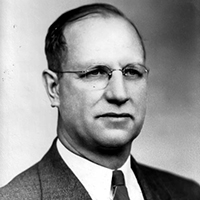 William C. Johnstone spent a large portion of his career with the University of Kentucky Cooperative Extension Service, where he worked as a county agent and later as a specialist. He graduated from UK in 1916 with a bachelor’s degree in horticulture. He spent about seven years teaching agriculture in Brazil before joining UK. After serving a few years as a county agent, Johnstone began working in Lexington researching cover crops and their use to stop erosion. Johnstone became the chief proponent of the Kentucky 31 fescue variety that had recently been discovered in Kentucky. In 1945, Johnstone devised the extension project known as the Corn Derby as a means of awakening farmers to the potentials in corn production and followed its success with the Kentucky Green Pastures Program, aimed at improving pastures in the state. Johnstone left the university after 29 years to become the agricultural representative for the Kentucky Bankers Association. Johnstone fescue, developed in the early 1970s by UK and the U.S. Department of Agriculture, was named in his honor. He died in 1978.
William C. Johnstone spent a large portion of his career with the University of Kentucky Cooperative Extension Service, where he worked as a county agent and later as a specialist. He graduated from UK in 1916 with a bachelor’s degree in horticulture. He spent about seven years teaching agriculture in Brazil before joining UK. After serving a few years as a county agent, Johnstone began working in Lexington researching cover crops and their use to stop erosion. Johnstone became the chief proponent of the Kentucky 31 fescue variety that had recently been discovered in Kentucky. In 1945, Johnstone devised the extension project known as the Corn Derby as a means of awakening farmers to the potentials in corn production and followed its success with the Kentucky Green Pastures Program, aimed at improving pastures in the state. Johnstone left the university after 29 years to become the agricultural representative for the Kentucky Bankers Association. Johnstone fescue, developed in the early 1970s by UK and the U.S. Department of Agriculture, was named in his honor. He died in 1978.
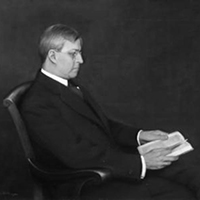 Joseph Hoeing Kastle received a Bachelor of Science in 1884 and a master’s degree in 1886 from UK. He went on to receive a doctorate in chemistry from Johns Hopkins University. A native Lexingtonian, he returned to UK as a professor in 1888 and led the general, organic and agricultural chemistry program until 1905 when he left to become chief of the Division of Chemistry at the U.S. Public Health and Marine Hospital Service. The UK Alumni Association traces its history to 1889, when Kastle persuaded a few of his fellow faculty members who were also UK graduates to establish an alumni club. He served as the organization’s president from 1891 to 1902. From 1909 to 1911, he was chair of chemistry at the University of Virginia. In 1911, he returned to UK to head the Department of Chemical Research in the Agricultural Experiment Station. One year later, he was named director of the experiment station and held that role until his death in 1916 at age 53. He was also dean of the College of Agriculture from 1912 until just a few weeks prior to his death. Kastle Hall on the UK campus was named in his honor.
Joseph Hoeing Kastle received a Bachelor of Science in 1884 and a master’s degree in 1886 from UK. He went on to receive a doctorate in chemistry from Johns Hopkins University. A native Lexingtonian, he returned to UK as a professor in 1888 and led the general, organic and agricultural chemistry program until 1905 when he left to become chief of the Division of Chemistry at the U.S. Public Health and Marine Hospital Service. The UK Alumni Association traces its history to 1889, when Kastle persuaded a few of his fellow faculty members who were also UK graduates to establish an alumni club. He served as the organization’s president from 1891 to 1902. From 1909 to 1911, he was chair of chemistry at the University of Virginia. In 1911, he returned to UK to head the Department of Chemical Research in the Agricultural Experiment Station. One year later, he was named director of the experiment station and held that role until his death in 1916 at age 53. He was also dean of the College of Agriculture from 1912 until just a few weeks prior to his death. Kastle Hall on the UK campus was named in his honor.
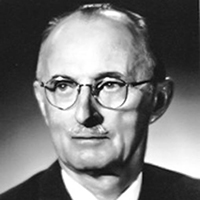 William Davis Salmon was internationally known for his contributions to human and animal nutrition and played a key role in the development of the livestock industry in Alabama. Born in Metcalfe County in 1895, he received a degree in agriculture at UK in 1920. Salmon initiated pathology studies associated with nutritional deficiencies. Among his significant contributions was showing that vitamin B actually was a complex of vitamins. He was a research professor of animal nutrition and an animal nutritionist at Auburn University. He became head of the Department of Animal Husbandry and Nutrition in 1950, where he enlarged the department's staff and began an expanded research program on breeding, feeding and management of cattle, hogs and sheep. He retired from the staff of the Auburn University Experiment Station in 1965. Mr. Salmon died in 1966.
William Davis Salmon was internationally known for his contributions to human and animal nutrition and played a key role in the development of the livestock industry in Alabama. Born in Metcalfe County in 1895, he received a degree in agriculture at UK in 1920. Salmon initiated pathology studies associated with nutritional deficiencies. Among his significant contributions was showing that vitamin B actually was a complex of vitamins. He was a research professor of animal nutrition and an animal nutritionist at Auburn University. He became head of the Department of Animal Husbandry and Nutrition in 1950, where he enlarged the department's staff and began an expanded research program on breeding, feeding and management of cattle, hogs and sheep. He retired from the staff of the Auburn University Experiment Station in 1965. Mr. Salmon died in 1966.
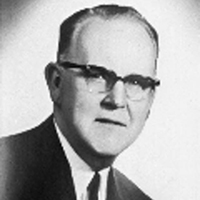 Jesse Washington Tapp was born in Corydon on Jan. 2, 1900, and received his bachelor’s degree in agriculture at UK in 1920. He would go on to a distinguished career in banking, retiring in 1965 as chairman of the board of Bank of America, a position he held for 10 years. Prior to his affiliation with the bank, he joined the U.S. Department of Agriculture, where he was engaged in research and administrative work in agricultural economics. He moved to the National Investors Corporation eight years later, working as an economist until 1933, when he rejoined the USDA as an administrator in various agencies, including heading the Federal Surplus Commodities Corporation from 1937 to 1939 and also directing the Federal Crop Insurance Corporation from 1938 to 1939. Tapp began his banking career as vice president in Bank of America’s San Francisco office in 1939. He left the bank briefly during World War II to serve as associate administrator of the U.S. War Food Administration in 1943 and as president of the Axton-Fisher Tobacco Company in Louisville from 1943 to 1945. He served on numerous business and community boards and organizations and acted in an advisory capacity for a number of governmental committees. Mr. Tapp died in 1967.
Jesse Washington Tapp was born in Corydon on Jan. 2, 1900, and received his bachelor’s degree in agriculture at UK in 1920. He would go on to a distinguished career in banking, retiring in 1965 as chairman of the board of Bank of America, a position he held for 10 years. Prior to his affiliation with the bank, he joined the U.S. Department of Agriculture, where he was engaged in research and administrative work in agricultural economics. He moved to the National Investors Corporation eight years later, working as an economist until 1933, when he rejoined the USDA as an administrator in various agencies, including heading the Federal Surplus Commodities Corporation from 1937 to 1939 and also directing the Federal Crop Insurance Corporation from 1938 to 1939. Tapp began his banking career as vice president in Bank of America’s San Francisco office in 1939. He left the bank briefly during World War II to serve as associate administrator of the U.S. War Food Administration in 1943 and as president of the Axton-Fisher Tobacco Company in Louisville from 1943 to 1945. He served on numerous business and community boards and organizations and acted in an advisory capacity for a number of governmental committees. Mr. Tapp died in 1967.
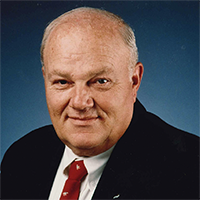 James “Jim” Mahan
James “Jim” Mahan
James “Jim” Mahan, of Lexington, has been an active and important part of Kentucky agriculture since his youth. Since receiving his degree in animal science in 1967, Mahan has devoted his life to his farm, family, youth and agriculture. From opening his farm and sharing it for many years with the local 4-H sheep club, to providing leadership for the development of Locust Trace AgriScience farm and school, he is an advocate for youth leadership and for agriculture. Mahan was a key leader in reviving agriculture’s role at the Bluegrass Fair at Lexington’s Masterson Station Park, by providing leadership and financial support for the construction of the Ag Pavilion. He has provided leadership and service to many agricultural groups and, as one of his nominators noted, his selfless efforts are reflected in the youth he’s impacted and the programs and infrastructure he’s put into place that will have positive impacts for generations to come.
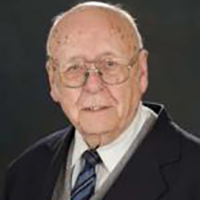 Herbert Ockerman
Herbert Ockerman
Herbert Ockerman was born in Chaplin in 1932 and came to the University of Kentucky to play football under legendary coach Paul “Bear” Bryant in 1950. Unfortunately, or perhaps fortunately for the world, an injury changed those plans. Ockerman went on to a distinguished career in animal sciences at The Ohio State University where he continues to teach today. His alumni, scattered across every continent except Antarctica, include secretaries of agriculture, university presidents, deans, department chairs and directors of research institutes. During a visit to a Brazilian university, he discovered that they had no books in their library. That discovery led him on a philanthropic endeavor that continues today. Dr. Ockerman collects and distributes books to libraries throughout the world from his garage. To date those donations have an estimated value of more than $850 million and total more than 1,500 separate shipments to more than 350 global destinations. For his academic and philanthropic efforts, Ockerman has received many national and international honors including at least one library that bears his name.
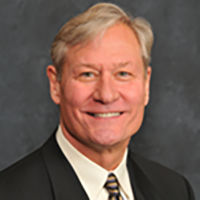 Glenn Allen Stith
Glenn Allen Stith
Glenn Allen Stith, a native of Meade County, graduated from UK in 1978 with a degree in agricultural economics. Following graduation, he joined Monsanto and for the next 32 years held a variety of positions in the company. At his retirement, he was vice president of commercial operations, North America and Latin America North, in Monsanto’s crop protection division. During his career, he was a mentor and coach giving countless hours of advice to others even as he took on larger leadership roles. Stith also lends his time and talents to the country’s youth, especially through FFA, and Alpha Gamma Rho fraternity. Through the Glenn and Maggie Stith Leadership Development Fund Endowment, more than 100 FFA members will be able to attend the Washington Leadership Conference each year. Stith has also invested in the future of students in the College of Agriculture, Food and Environment, helping to establish the Lincoln Trail Ag & HES Alumni Scholarship Fund, which benefits students from the nine-county region. Today, Stith works as a consultant and lives in Ankeny, Iowa.
Posthumous Recipients
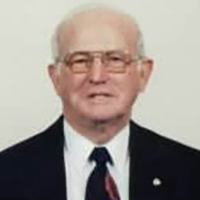 Charles D. Bennett was born in Bremen and went on to earn bachelor’s and master’s degrees at the College of Agriculture. He had many vocations through his life, working first teaching classes to veterans and renting a farm where he started milking cows in Daviess County. He and his wife, Jeanette, moved to Hardinsburg in 1949 where they put down permanent roots. Bennett made a financial investment in the local Farmers Bank and ultimately found his true calling. Under his leadership, the Farmers Bank expanded from one to three locations and in 1985, the Bennett family also purchased controlling interest in the Leitchfield Deposit Bank. He was a firm believer in community banks. Bennett was involved in forming the Breckinridge County Development Corporation and was an active member of Hardinsburg United Methodist Church, Gideon’s International, Hardinsburg Rotary Club and the UK Alumni Association.
Charles D. Bennett was born in Bremen and went on to earn bachelor’s and master’s degrees at the College of Agriculture. He had many vocations through his life, working first teaching classes to veterans and renting a farm where he started milking cows in Daviess County. He and his wife, Jeanette, moved to Hardinsburg in 1949 where they put down permanent roots. Bennett made a financial investment in the local Farmers Bank and ultimately found his true calling. Under his leadership, the Farmers Bank expanded from one to three locations and in 1985, the Bennett family also purchased controlling interest in the Leitchfield Deposit Bank. He was a firm believer in community banks. Bennett was involved in forming the Breckinridge County Development Corporation and was an active member of Hardinsburg United Methodist Church, Gideon’s International, Hardinsburg Rotary Club and the UK Alumni Association.
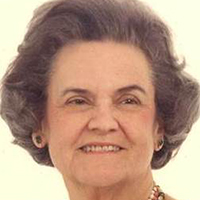 Rose Mary Codell Brooks invested her time, energy and material resources in efforts aimed at helping others through volunteerism. A native of Winchester, she earned bachelor's degrees in biological sciences and home economics from the College of William and Mary and a master’s degree in home economics education from the University of Kentucky in 1938. She helped found the Winchester-Clark County Public Library and nurtured the library for many years as a volunteer and as a member of the board of trustees. She served on more than 40 boards, organizations and committees. She has received numerous awards and recognition. Her interests were diverse and encompassed her profession of home economics, women’s issues, history and the arts. She championed equal rights for women and was the first woman on various boards and commissions.
Rose Mary Codell Brooks invested her time, energy and material resources in efforts aimed at helping others through volunteerism. A native of Winchester, she earned bachelor's degrees in biological sciences and home economics from the College of William and Mary and a master’s degree in home economics education from the University of Kentucky in 1938. She helped found the Winchester-Clark County Public Library and nurtured the library for many years as a volunteer and as a member of the board of trustees. She served on more than 40 boards, organizations and committees. She has received numerous awards and recognition. Her interests were diverse and encompassed her profession of home economics, women’s issues, history and the arts. She championed equal rights for women and was the first woman on various boards and commissions.
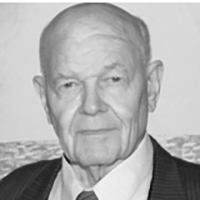 Jim Corbin, a Providence, Ky., native, is the father of the modern-day pet food industry. He formulated and extruded the world's first expanded foods for dogs and cats, catfish, trout and monkeys while working at Ralston Purina. Today more than 95% of the nutritional offerings made to America's cats and dogs is in the dry form, the technology developed and championed by Corbin. He earned his bachelor's and master's degrees in animal science from the University of Kentucky College of Agriculture and his doctorate from the University of Illinois at Urbana-Champaign. One of their projects was monkey food, which aided in the nutritional health of monkeys used by Jonas Salk in the development of the polio vaccine and sped up the creation of the vaccine. He later joined the Department of Animal Science at the University of Illinois as professor and established a teaching and research program in companion animal biology. Corbin received numerous honors for his work in the laboratory and classroom.
Jim Corbin, a Providence, Ky., native, is the father of the modern-day pet food industry. He formulated and extruded the world's first expanded foods for dogs and cats, catfish, trout and monkeys while working at Ralston Purina. Today more than 95% of the nutritional offerings made to America's cats and dogs is in the dry form, the technology developed and championed by Corbin. He earned his bachelor's and master's degrees in animal science from the University of Kentucky College of Agriculture and his doctorate from the University of Illinois at Urbana-Champaign. One of their projects was monkey food, which aided in the nutritional health of monkeys used by Jonas Salk in the development of the polio vaccine and sped up the creation of the vaccine. He later joined the Department of Animal Science at the University of Illinois as professor and established a teaching and research program in companion animal biology. Corbin received numerous honors for his work in the laboratory and classroom.
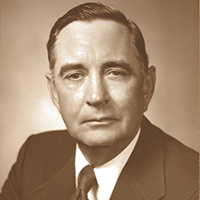 H. David Hilliard was born on a farm in Clinton and graduated from the College of Agriculture in 1938. Hilliard taught vocational agriculture for five years while completing graduate work. After his teaching stint, he returned to Hickman County and to the farm. Throughout his life, Hilliard stressed the importance of the education and assistance he received from UK's College of Agriculture, Agricultural Experiment Station and Cooperative Extension. Hilliard certainly has paid that debt off and more through his work and dedication to the college and agriculture. He was instrumental in ensuring that Kentucky farmers had access to quality, certified seed through the Kentucky Seed Improvement Association and worked to ensure the organization had the proper foundation under it through the college. He served three terms as president of the association. He served on numerous agricultural and community organizations throughout his life.
H. David Hilliard was born on a farm in Clinton and graduated from the College of Agriculture in 1938. Hilliard taught vocational agriculture for five years while completing graduate work. After his teaching stint, he returned to Hickman County and to the farm. Throughout his life, Hilliard stressed the importance of the education and assistance he received from UK's College of Agriculture, Agricultural Experiment Station and Cooperative Extension. Hilliard certainly has paid that debt off and more through his work and dedication to the college and agriculture. He was instrumental in ensuring that Kentucky farmers had access to quality, certified seed through the Kentucky Seed Improvement Association and worked to ensure the organization had the proper foundation under it through the college. He served three terms as president of the association. He served on numerous agricultural and community organizations throughout his life.
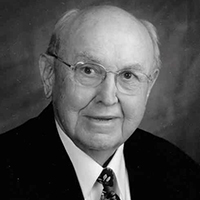 George M. Kurtz, a 1937 graduate of the College of Agriculture, went on to become an auctioneer, businessman and farmer in Western Kentucky. After working briefly as a county agent for the UK Cooperative Extension Service, he and his wife, Jane, bought a farm near Sturgis where they raised registered Angus cattle and Suffolk sheep. Kurtz went to auction school became one of the top livestock auctioneers in the United States, before moving the business into real estate auctions. Today, the company is one of the nation's leading real estate auction companies licensed in eight states. Among his numerous honors are membership in the Kentucky Auctioneers Hall of Fame, National Auctioneers Hall of Fame, UK Animal Science Hall of Fame and UK Fellow.
George M. Kurtz, a 1937 graduate of the College of Agriculture, went on to become an auctioneer, businessman and farmer in Western Kentucky. After working briefly as a county agent for the UK Cooperative Extension Service, he and his wife, Jane, bought a farm near Sturgis where they raised registered Angus cattle and Suffolk sheep. Kurtz went to auction school became one of the top livestock auctioneers in the United States, before moving the business into real estate auctions. Today, the company is one of the nation's leading real estate auction companies licensed in eight states. Among his numerous honors are membership in the Kentucky Auctioneers Hall of Fame, National Auctioneers Hall of Fame, UK Animal Science Hall of Fame and UK Fellow.
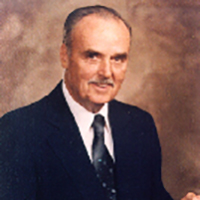 Ira E. Massie was born in Stamping Ground and earned bachelor’s and master’s degrees in agronomy from the College of Agriculture. He went on to become a UK extension tobacco specialist known for his expertise and outreach. In his first year as tobacco specialist, he spent most of his time in the field working one-on-one with farmers. Because this method did not allow for communicating to a large group, Massie decided to use the mass media and soon would be seen in media markets in Louisville, Lexington, and Huntington, W.Va. He wrote for a monthly magazine sent to tobacco growers in Kentucky, Mississippi, Indiana, Ohio and North Carolina and served as tobacco editor for two monthly farm magazines. He was considered the leading authority on tobacco and was quoted in many national and international publications. He retired in 1983, but continued his agricultural work, using mass media to reach farmers. During his career, he won many awards and served on several prestigious committees.
Ira E. Massie was born in Stamping Ground and earned bachelor’s and master’s degrees in agronomy from the College of Agriculture. He went on to become a UK extension tobacco specialist known for his expertise and outreach. In his first year as tobacco specialist, he spent most of his time in the field working one-on-one with farmers. Because this method did not allow for communicating to a large group, Massie decided to use the mass media and soon would be seen in media markets in Louisville, Lexington, and Huntington, W.Va. He wrote for a monthly magazine sent to tobacco growers in Kentucky, Mississippi, Indiana, Ohio and North Carolina and served as tobacco editor for two monthly farm magazines. He was considered the leading authority on tobacco and was quoted in many national and international publications. He retired in 1983, but continued his agricultural work, using mass media to reach farmers. During his career, he won many awards and served on several prestigious committees.
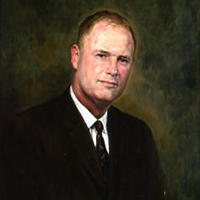 William A. Seay was born in Missouri but spent most of his early years in Hickman County. He went on to receive bachelor’s and master’s degrees in agriculture at the University of Kentucky and earned his doctorate from the University of Wisconsin. Upon completion of his doctorate, Seay returned to the UK College of Agriculture as an assistant professor of soils. At UK, he went on to hold the positions of professor in soils, administrative assistant to the dean and director of the Division of Agriculture and vice director of the Kentucky Experiment Station. Seay twice served as acting dean and director of the Kentucky Experiment Station. He was appointed dean of the UK College of Agriculture in 1963 and served in that capacity until his death in 1969. Dean Seay died when an airplane he was piloting crashed into a mountain in West Virginia.
William A. Seay was born in Missouri but spent most of his early years in Hickman County. He went on to receive bachelor’s and master’s degrees in agriculture at the University of Kentucky and earned his doctorate from the University of Wisconsin. Upon completion of his doctorate, Seay returned to the UK College of Agriculture as an assistant professor of soils. At UK, he went on to hold the positions of professor in soils, administrative assistant to the dean and director of the Division of Agriculture and vice director of the Kentucky Experiment Station. Seay twice served as acting dean and director of the Kentucky Experiment Station. He was appointed dean of the UK College of Agriculture in 1963 and served in that capacity until his death in 1969. Dean Seay died when an airplane he was piloting crashed into a mountain in West Virginia.
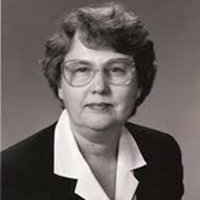 Barbara Ellis Taylor was introduced to the University of Kentucky through her 4-H involvement as a child in Boyle County. She entered UK to study in what is today’s School of Human Environmental Sciences in the College of Agriculture, Food and Environment. She went on to earn her doctorate in textiles and clothing from the University of Wisconsin, joined the faculty at the University of Florida Institute of Food and Agricultural Sciences and remained there until retiring in 1996. At Florida, Taylor had a distinguished career. She chaired a task force to develop a multidisciplinary major in human resource development and was then asked to serve as the first undergraduate coordinator. Taylor’s interest in assisting women led her to work with faculty on gender equity issues. She served as an ambassador for her profession around the world. She was named outstanding alumna at both the UK School of Human Environmental Sciences and the School of Family Resources and Consumer Sciences at the University of Wisconsin.
Barbara Ellis Taylor was introduced to the University of Kentucky through her 4-H involvement as a child in Boyle County. She entered UK to study in what is today’s School of Human Environmental Sciences in the College of Agriculture, Food and Environment. She went on to earn her doctorate in textiles and clothing from the University of Wisconsin, joined the faculty at the University of Florida Institute of Food and Agricultural Sciences and remained there until retiring in 1996. At Florida, Taylor had a distinguished career. She chaired a task force to develop a multidisciplinary major in human resource development and was then asked to serve as the first undergraduate coordinator. Taylor’s interest in assisting women led her to work with faculty on gender equity issues. She served as an ambassador for her profession around the world. She was named outstanding alumna at both the UK School of Human Environmental Sciences and the School of Family Resources and Consumer Sciences at the University of Wisconsin.
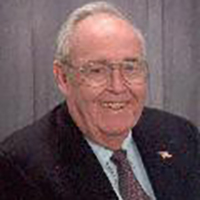 Henry Dulin White was an internationally renowned and respected third generation horseman. He was born in Hopkinsville but moved with his family to Lexington when he was just an infant. He graduated from the University of Kentucky College of Agriculture. White served as a breeding advisor for many notable Thoroughbred owners and was farm manager of Elsmeade and Plum Lane Farms until he retired in 2002. White was a tireless ambassador for the Thoroughbred industry, serving as a member of the Keeneland Club, president of the Thoroughbred Club of America and vice president of the Grayson-Jockey Club Foundation. He was a lifetime member of the Kentucky Thoroughbred Farm Manager's Club, earning the distinction of Kentucky's Farm Manager of the Year in 1979. He was director emeritus of the Kentucky Thoroughbred Association, two-term president of the Thoroughbred Breeders of Kentucky, a founder of the Kentucky Equine Education Project and a UK Alumni Association Fellow.
Henry Dulin White was an internationally renowned and respected third generation horseman. He was born in Hopkinsville but moved with his family to Lexington when he was just an infant. He graduated from the University of Kentucky College of Agriculture. White served as a breeding advisor for many notable Thoroughbred owners and was farm manager of Elsmeade and Plum Lane Farms until he retired in 2002. White was a tireless ambassador for the Thoroughbred industry, serving as a member of the Keeneland Club, president of the Thoroughbred Club of America and vice president of the Grayson-Jockey Club Foundation. He was a lifetime member of the Kentucky Thoroughbred Farm Manager's Club, earning the distinction of Kentucky's Farm Manager of the Year in 1979. He was director emeritus of the Kentucky Thoroughbred Association, two-term president of the Thoroughbred Breeders of Kentucky, a founder of the Kentucky Equine Education Project and a UK Alumni Association Fellow.
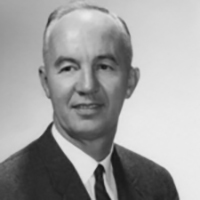 Patch G. Woolfolk was a well-known University of Kentucky College of Agriculture animal science faculty member from 1953 until his retirement in 1986. Woolfolk, a native of Brandenburg, received his bachelor’s and master’s degrees from the UK College of Agriculture and his doctorate from Cornell University. He served his entire professional career in UK’s Department of Animal Science, where he taught courses at the undergraduate and graduate levels. He was also in charge of the college’s sheep programs. His interest in forage evaluation, pasture management, creep feeding, carcass evaluation and broader aspects of producing lambs continued throughout his research career. He served as judge at major sheep shows and fairs and was known for his high level of dedication. After directing the sheep research and teaching programs for 16 years, Woolfolk accepted broader responsibilities as associate chair of the Department of Animal Science. In 2002, the College honored his memory by naming a laboratory the Patch G. Woolfolk Laboratory at UK's state-of-the art sheep facility located at the C. Oran Little Research Farm in Woodford County.
Patch G. Woolfolk was a well-known University of Kentucky College of Agriculture animal science faculty member from 1953 until his retirement in 1986. Woolfolk, a native of Brandenburg, received his bachelor’s and master’s degrees from the UK College of Agriculture and his doctorate from Cornell University. He served his entire professional career in UK’s Department of Animal Science, where he taught courses at the undergraduate and graduate levels. He was also in charge of the college’s sheep programs. His interest in forage evaluation, pasture management, creep feeding, carcass evaluation and broader aspects of producing lambs continued throughout his research career. He served as judge at major sheep shows and fairs and was known for his high level of dedication. After directing the sheep research and teaching programs for 16 years, Woolfolk accepted broader responsibilities as associate chair of the Department of Animal Science. In 2002, the College honored his memory by naming a laboratory the Patch G. Woolfolk Laboratory at UK's state-of-the art sheep facility located at the C. Oran Little Research Farm in Woodford County.
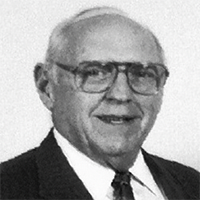 Garland M. Bastin
Garland M. Bastin
Garland Bastin made many exceptional contributions to Kentuckians. He empowered hundreds to believe in themselves and the things they could accomplish. Bastin was raised on a small farm in Hart County and was an active 4-H member. He graduated from the University of Kentucky in 1945 with a bachelor’s degree in agriculture and began a long and distinguished career with UK and the Kentucky Cooperative Extension Service. Bastin served as an assistant county agent in Logan County, supervisor of the UK dairy herd, extension dairyman in charge of 4-H work, extension district leader, program specialist in agriculture, acting chairman of agriculture programs, program specialist in 4-H, area extension director and extension specialist in animal science. When Bastin retired in 1978, Gov. Julian Carroll immediately tapped him to be the Governor’s Advocate for Agriculture.
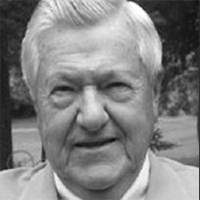 Louis Boyd Smith
Louis Boyd Smith
Louis Boyd began his 41-year career of service to animal agriculture as an extension specialist at the University of Kentucky before moving on to distinguish himself at the University of Tennessee, Michigan State University and the University of Georgia. Under his leadership, external funding for Georgia’s College of Agricultural and Environmental Sciences and Agricultural Experiment Station increased more than four-fold. He was instrumental in building that college’s alumni association and development activities. Throughout his career, he was a mentor to students, student clubs and teams. Boyd, who lives in Bogart, Ga., received his undergraduate and graduate degrees from the UK College of Agriculture in 1950 and 1951.
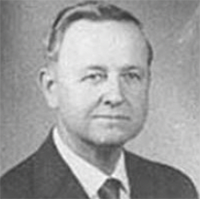 Dudley Broadbent Jr.
Dudley Broadbent Jr.
Smith Broadbent received his bachelor’s degree in agriculture at the University of Kentucky in 1934, followed by a master’s degree a year later. He was an agriculturist, businessman and civic leader. He was president of the Kentucky Farm Bureau Federation and the Kentucky Seed Improvement Association, Kentucky State Fair Board and the Thomas Poe Cooper Foundation. He also was active in the Kentucky Lake Council, Western Kentucky Produce Inc. and the Trigg County Farm Bureau. He was the owner of Broadbent Hybrids and served as president of Broadbent-Birmingham Feed Products. He was chairman of the Federal Reserve Bank of Louisville from 1953 to 1955, and deputy chairman and a member of the Board of Directors, and vice chairman, Board of Directors of the Federal Reserve Bank of St. Louis. He served on numerous boards including the UK Board of Trustees, Kentucky Wesleyan College and the Trigg County Hospital.
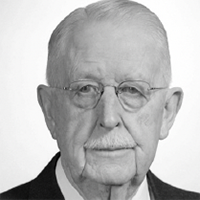 Thomson Ripley Bryant
Thomson Ripley Bryant
As a student, T.R. Bryant played center on the University of Kentucky basketball team from 1904 to 1906, managed the school's football team in 1907 and was senior class president. After graduating from the UK College of Agriculture, he began his work at UK as an assistant in the animal husbandry department of the Agricultural Experiment Station. In 1910, he was named associate director of the newly formed UK Cooperative Extension Service and held that position until his retirement in 1955. In 1910, he was also appointed to organize and teach the first course in elementary bacteriology at UK. Bryant hired the first county extension agent in Kentucky and was instrumental in forming the Kentucky Farm Bureau. Bryant was also active in 4-H work throughout the state and was the author of the first publication used for club work in Kentucky.
 Patricia J. Buster
Patricia J. Buster
Patricia Buster graduated from the University of Kentucky in 1934 and was the first known graduate of the College of Home Economics to become a home economist in business at the national level. The introduction of electric appliances for the home improved the overall quality of life for families around the world, and Buster wrote use and care manuals for these appliances. She also served on the standardized board of major appliance manufacturers. She never forgot her own beginnings and the inspiration she had received from higher education. She endowed the Statie Erikson Scholarship in the College of Home Economics and the John I. and Patricia J. Buster Endowed Professorship and Graduate Fellowship Fund. She was involved in the Future Homemakers of America, YMCA and various programs such as infant care, playgrounds and youth drug rehabilitation programs.
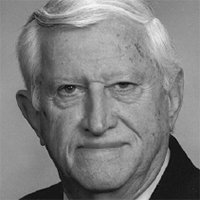 Maurice Cook
Maurice Cook
Maurice Cook, a world-renowned expert in soil and water conservation and a leader in the field of soil science, taught at North Carolina State University for more than 30 years before his retirement in 1992 at the rank of professor. He also served as the director of the North Carolina Division of Soil and Water where he initiated the first-in-the-nation soil and water conservation cost-share program for farmers. Cook also served as senior advisor for agricultural affairs for the state, representing the governor throughout the state and the world on issues of better soil and water conservation management. A resident of Raleigh, N.C., he received his bachelor’s degree in 1957 and master’s degree in 1959 in agronomy from the University of Kentucky College of Agriculture.
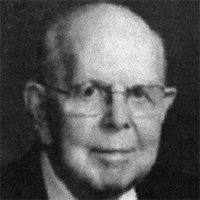 Russell Franklin Frazier
Russell Franklin Frazier
Frank Frazier received his bachelor’s degree in agricultural economics from the University of Kentucky in 1940. Following a stint in the U.S. Navy, he joined the U.S. Department of Agriculture. While overseeing poultry and egg marketing in nine southeastern states for the USDA, he directed the first official cost-of-production study in the broiler industry. He was executive secretary of the Virginia State Poultry Federation and the Southeastern Poultry and Egg Association, during which time he led the push to keep poultry from federal production controls and price supports by developing programs to boost chicken consumption. These promotions were so successful that they became a major factor in expanding per capita consumption of ready-to-cook chicken from 21.3 pounds in 1955 to 38.5 pounds in 1972 and set the stage for the continued increase in per capita consumption of chicken in the years to follow.
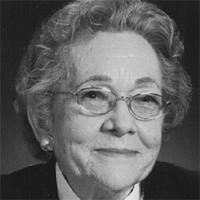 Opal Hurley Mann Green
Opal Hurley Mann Green
Opal Green received her bachelor’s and master’s degrees at the University of Kentucky. She taught high school briefly in Illinois before embarking on a career with Kentucky Cooperative Extension. Green held positions of assistant county home demonstration agent and home demonstration agent, and in 1958 she became the first female county coordinator. She also served as central district leader of home demonstration agents and state program specialist at UK. In 1971, she moved to Washington, D.C., to serve as deputy assistant administrator, Home Economics, Extension Service, U.S. Department of Agriculture. Her career at the USDA spanned 11 years, and she was promoted to deputy administrator for Home Economics and Human Nutrition before her retirement in 1982.
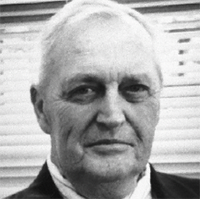 John H. Heick
John H. Heick
Upon graduation from the University of Kentucky in January 1950, John Heick returned home to manage several farms, including his family farm. After 15 years, Heick began work as a field assigned farm appraiser for Federal Land Bank. Heick became president of the Federal Land Bank Association in Lexington in 1977 and remained in the position until his retirement in 1985. Heick was an active member of what was known at the time as the Agriculture Alumni Association. He was elected president of the association in 1985, after serving several years on the board. Heick was a strong advocate for agriculture and the UK College of Agriculture. He and his wife, Betty Jo, established an undergraduate scholarship, the John H. Heick Professorship in Soil Science and funded the renovation of a portion of the E.S. Good Barn to create the John H. and Betty Jo Denton Heick Agriculture Alumni Board Room.
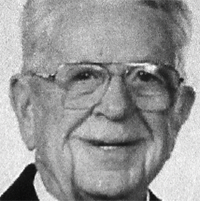 James Kabler
James Kabler
James Kabler graduated in 1938 with a degree in animal science from the University of Kentucky College of Agriculture. During his 37-year career with the U.S. Department of Agriculture’s Farmers’ Home Administration, Kabler set an example of excellence, assisting farm families in establishing and sustaining their farms and land resources. His expertise and professionalism had the Secretary of Agriculture calling on him to assist and solve problems around the country. He received the first USDA Superior Award in Kentucky in 1951 for outstanding work in the field of agriculture. Following his retirement as a district supervisor with the USDA, Kabler was the appraiser for all loans and public relations officer for the Horse Cave State Bank.
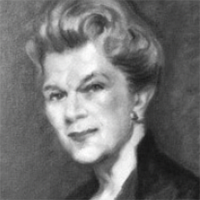 Pauline Park Knapp
Pauline Park Knapp
Pauline Park Knapp received her bachelor’s degree in home economics from the University of Kentucky in 1924. Early in her professional career, she worked as associate professor of home economics and director of the nursery school at the University of Georgia. She is credited with establishing the first child development center in Georgia. Knapp returned to UK’s Department of Home Economics in the late 1920s. During the summer of 1930, she laid the groundwork for a nursery school in the Home Management House, which continues today. She went on to be dean of the School of Home Economics at the University of Georgia and later, president and director of Merrill-Palmer Institute in Michigan. Knapp earned national and international recognition in child development and family relations.
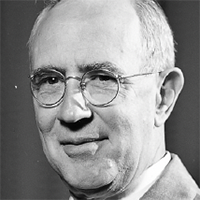 Charles A. Mahan
Charles A. Mahan
Charles Mahan was hired in 1912 as Kentucky’s first full-time county agent in agriculture, serving in Henderson County. Mahan left the state for a brief period for extension jobs in Indiana and Ohio before returning to Kentucky where he became the state leader for agriculture agents for Kentucky Cooperative Extension. During his tenure, he saw extension grow from its beginning of one agent to agents in all 120 counties. He helped determine that the function of extension agents should be primarily education, offering unbiased, research-based information to their clients. This continues to be the philosophy of Cooperative Extension today. Mahan received his undergraduate and master’s degrees in agriculture from UK. He retired in 1958, after 41 years of service contributing to the betterment of the lives of Kentuckians.
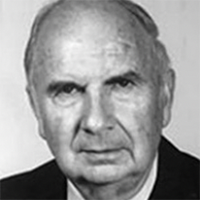 Shirley H. Phillips
Shirley H. Phillips
Shirley Phillips is known throughout the world as one of the fathers of no-till agriculture, a practice that farmers worldwide use to conserve soil and water. His initial no-till work was done in collaboration with Christian County farmer Harry Young Jr. and Reeves Davie, agricultural extension agent in Christian County. His efforts in developmental research, and in getting the information out through personal contacts, technical and popular writings, radio, television, field days and short courses, provided the stimulus that makes Kentucky a world leader in no-tillage farming and research. He received his bachelor’s and master’s degrees from the University of Kentucky College of Agriculture. Phillips served as an associate agricultural agent, state specialist in field crops and associate director for extension during his tenure at UK.
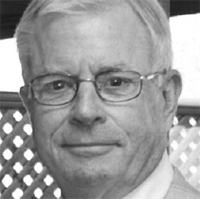 David Switzer
David Switzer
David Switzer is recognized worldwide for his extensive knowledge, experience and accomplishments related to the horse breeding and racing industries. In addition, he is an acknowledged expert in the field of equine foundation bloodstock and insurance, having owned and operated a bloodstock agency for many years. He promotes the Kentucky Thoroughbred industries locally, nationally and internationally. He played a vital communications role during the Mare Reproductive Loss Syndrome crisis from 2001 to 2002, and led efforts to create an emergency response team from state government and the industry, should another such event occur. He received his bachelor’s degree in animal science from the University of Kentucky College of Agriculture in 1967 and lives in Lexington.
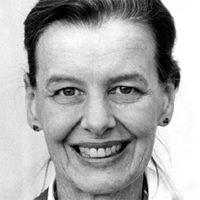 Doris A. Tichenor
Doris A. Tichenor
Doris Tichenor received her bachelor’s degree in home economics and her master’s degree in nutrition from the University of Kentucky College of Home Economics. She was an instructor and researcher at UK where she examined the quality and nutritional value of fresh and processed horticultural crops. Upon completing her doctorate, she served as assistant director of extension for home economics and community development and as associate dean, UK College of Home Economics from 1969 to 1984. Tichenor was director of home economics programs and chair of the home economics department at the University of Florida from 1984 to 1994.
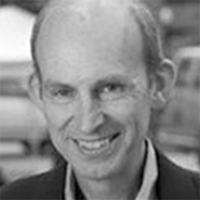 Larry W. Turner
Larry W. Turner
Larry Turner dedicated his life to agriculture from his roots on an Indiana farm until his untimely death in 2006. As leader of the University of Kentucky Cooperative Extension Service, Turner traveled across the state and beyond in his efforts to improve the lives of Kentuckians. He was known as a strong believer in extension’s ability to enhance people’s lives and was an enthusiastic supporter of grassroots extension programs including agriculture and natural resources, 4-H youth development, family and consumer sciences and community and economic development. Turner believed in the mission of extension and its role in “taking the university to the people.” He earned his doctorate in agricultural engineering from UK in 1984. During his career, he held the positions of extension agricultural engineer, faculty member, chair of the Department of Biosystems and Agricultural Engineering and associate dean.
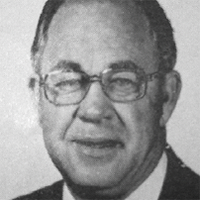 McElwyn "Mack" Whiteker
McElwyn "Mack" Whiteker
A native of Sunrise, Mack Whiteker received his bachelor’s, master’s and doctoral degrees from the University of Kentucky College of Agriculture. He served as the swine herdsman for UK from 1957 to 1959 before taking a position as extension swine specialist with Iowa State University. He returned to UK in 1967 as the extension swine specialist, and in 1981, Whiteker was named the assistant director of extension for agriculture. Whiteker was one of the fathers of Ag Roundup, the largest contiguous alumni event on UK’s campus. Each fall, hundreds of Ag and HES alumni return to campus to participate in this signature event. The M.D. Whiteker Fund for Excellence, endowed in his honor, is given annually to a state agriculture extension specialist who has at least six years of service and has demonstrated great leadership in the field, such as Whiteker displayed during his tenure at UK.
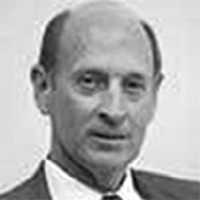 Harold Workman
Harold Workman
Harold Workman serves as president and chief executive officer for the Kentucky State Fair Board. Thanks to his efforts, the Kentucky Exposition Center is home to several signature events, including the North American International Livestock Exposition, the largest purebred livestock show in the world, and the National Farm Machinery Show, which ranks as one of Louisville’s top attractions each year, generating more than $20 million in annual economic impact. Also under this leadership, the exposition center was transformed into one of the 10 largest facilities of its type with more than 1.2 million square feet of indoor space. Workman, a Louisville resident, received his bachelor’s degree in animal science from the University of Kentucky College of Agriculture in 1969.
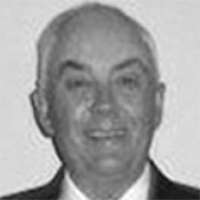 Joe Wright
Joe Wright
Joe Wright, a farmer and implement dealer, served as state senator for 16 years and Senate majority leader for 11 years, during which time he helped support the purchase of the college’s Woodford County farm and spearheaded efforts to secure funding for additional college building needs. He is a past president of the Kentucky Burley Growers Cooperative, state fair board member, and Council for Agricultural Research, Extension, and Teaching member. He served on the Breckinridge County school board, was a founding member of the Kentucky FFA Foundation and is a member of the 2012 Kentucky Tax Reform Commission. He received his bachelor’s degree from the University of Kentucky College of Agriculture in 1962 and lives in Harned.
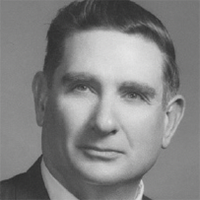 Harry Young Jr.
Harry Young Jr.
Harry Young is considered a pioneer of the no-till movement, having planted the first commercial plot in 1962 when he used a home-rigged Allis Chalmers planter to plant a small plot on the family farm now operated by his son, John, and grandson, Alexander. That field has been continuously no-tilled for 50 years. Today, approximately 90 million acres in the U.S. is under no-till production. The main reason Young started no-tilling was to eliminate soil erosion. Other benefits realized were labor savings, less horse power requirements and diesel fuel savings. Young received his bachelor’s degree from the University of Kentucky College of Agriculture and worked for eight years as an extension service field agent for farm management prior to returning to the farm full-time in 1954. Young co-authored two textbooks on no-till agriculture, had three films produced about his farming techniques, traveled around the world discussing no-till farming, and hosted thousands of national and international visitors at his Christian County farm.
